Detroit Community Health Equity Alliance (D-CHEA) Members
Community Organization Representatives
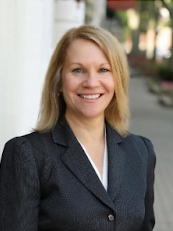 Laurie Arora is Vice President of Public Affairs, Philanthropy, and Organizational Development at PACE Southeast Michigan, a health plan and a health provider for aging adults. She has a wealth of experience in fundraising, grant writing, project management, organizational change, culture development, advocacy, and communications. Laurie is a former Grosse Pointe Park city council member and served in that capacity for eight years. Laurie also has her own consulting firm Politically Smart, LLC where she has worked on high-profile political campaigns. Prior to joining PACE Southeast Michigan, Laurie was the Director of Member Relations at the Greater Detroit Area Health Council and has experience in governmental agencies and banking. She holds a master’s degree in business administration (MBA - finance) from the University of Detroit-Mercy and a Bachelor of Science (human ecology) from Michigan State University. Laurie is also a graduate of Michigan State University’s Michigan Political Leadership Program and the Detroit Regional Chamber’s Leadership Detroit, class of XLII. Laurie serves on the National PACE Association’s Public Policy Committee, the Michigan Age Friendly Steering Committee, and recently received the “Advocate of the Year” Award from the PACE Association of Michigan for her tireless efforts in advocating for PACE participants. Laurie has a history of community involvement including serving on numerous community and non-profit boards.
Laurie Arora is Vice President of Public Affairs, Philanthropy, and Organizational Development at PACE Southeast Michigan, a health plan and a health provider for aging adults. She has a wealth of experience in fundraising, grant writing, project management, organizational change, culture development, advocacy, and communications. Laurie is a former Grosse Pointe Park city council member and served in that capacity for eight years. Laurie also has her own consulting firm Politically Smart, LLC where she has worked on high-profile political campaigns. Prior to joining PACE Southeast Michigan, Laurie was the Director of Member Relations at the Greater Detroit Area Health Council and has experience in governmental agencies and banking. She holds a master’s degree in business administration (MBA - finance) from the University of Detroit-Mercy and a Bachelor of Science (human ecology) from Michigan State University. Laurie is also a graduate of Michigan State University’s Michigan Political Leadership Program and the Detroit Regional Chamber’s Leadership Detroit, class of XLII. Laurie serves on the National PACE Association’s Public Policy Committee, the Michigan Age Friendly Steering Committee, and recently received the “Advocate of the Year” Award from the PACE Association of Michigan for her tireless efforts in advocating for PACE participants. Laurie has a history of community involvement including serving on numerous community and non-profit boards.
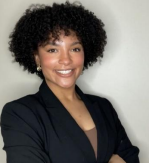 Sidnei Austin is the Community Outreach Specialist at the Leukemia and Lymphoma Society. She is in charge of their Myeloma Link program that is dedicated to providing information and resources to African American families in Detroit who are battling blood cancer. Sidnei is a Detroit-native and current student at Wayne State University majoring in Communications. When she is not serving her community she enjoys volunteering at animal shelters, writing poetry, and working out at Orange Theory.
Sidnei Austin is the Community Outreach Specialist at the Leukemia and Lymphoma Society. She is in charge of their Myeloma Link program that is dedicated to providing information and resources to African American families in Detroit who are battling blood cancer. Sidnei is a Detroit-native and current student at Wayne State University majoring in Communications. When she is not serving her community she enjoys volunteering at animal shelters, writing poetry, and working out at Orange Theory.
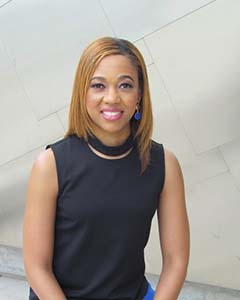 Lisa M. Braddix, M.P.H., is the Chief Health Equity Officer for the Southeastern Michigan Health Association where she works to foster organizational collaboration to improve community health using practical approaches that will eliminate health disparities in marginalized populations throughout southeast Michigan. Lisa has spent several years working in community health and is passionate about issues related to health disparities and health equity. Lisa also serves as the Steering Committee Chair for the newly established Center for Health Equity and Community Knowledge in Urban Populations at Wayne State University. She also is the cochair of the Michigan Cancer Consortium Health Equity and Policy Committee and the Healthy Pontiac We Can! Coalition. Lisa is a health enthusiast and a Certified Group Fitness Instructor through the Athletics and Fitness Association of America (AFAA). She is the Founder and CEO of Glow Up Fitness, LLC, a newly created fitness company empowering women and girls to adopt fitness as a life skill and as a cultural norm to practice through all stages of life and to pass down through generations. Lisa is a native of Cleveland, Ohio and a graduate of The Ohio State University with a Bachelor of Science Degree in Biological Sciences and has a Master of Public Health Degree from the University of Michigan. She has also earned a graduate certificate in Non-Profit Management from Eastern Michigan University and is currently a doctoral student at Wayne State University studying the Sociology of Health and Illness. Lisa is also a proud member of Alpha Kappa Alpha Sorority, Incorporated, the oldest service organization founded by collegeeducated, African American women.
Lisa M. Braddix, M.P.H., is the Chief Health Equity Officer for the Southeastern Michigan Health Association where she works to foster organizational collaboration to improve community health using practical approaches that will eliminate health disparities in marginalized populations throughout southeast Michigan. Lisa has spent several years working in community health and is passionate about issues related to health disparities and health equity. Lisa also serves as the Steering Committee Chair for the newly established Center for Health Equity and Community Knowledge in Urban Populations at Wayne State University. She also is the cochair of the Michigan Cancer Consortium Health Equity and Policy Committee and the Healthy Pontiac We Can! Coalition. Lisa is a health enthusiast and a Certified Group Fitness Instructor through the Athletics and Fitness Association of America (AFAA). She is the Founder and CEO of Glow Up Fitness, LLC, a newly created fitness company empowering women and girls to adopt fitness as a life skill and as a cultural norm to practice through all stages of life and to pass down through generations. Lisa is a native of Cleveland, Ohio and a graduate of The Ohio State University with a Bachelor of Science Degree in Biological Sciences and has a Master of Public Health Degree from the University of Michigan. She has also earned a graduate certificate in Non-Profit Management from Eastern Michigan University and is currently a doctoral student at Wayne State University studying the Sociology of Health and Illness. Lisa is also a proud member of Alpha Kappa Alpha Sorority, Incorporated, the oldest service organization founded by collegeeducated, African American women.
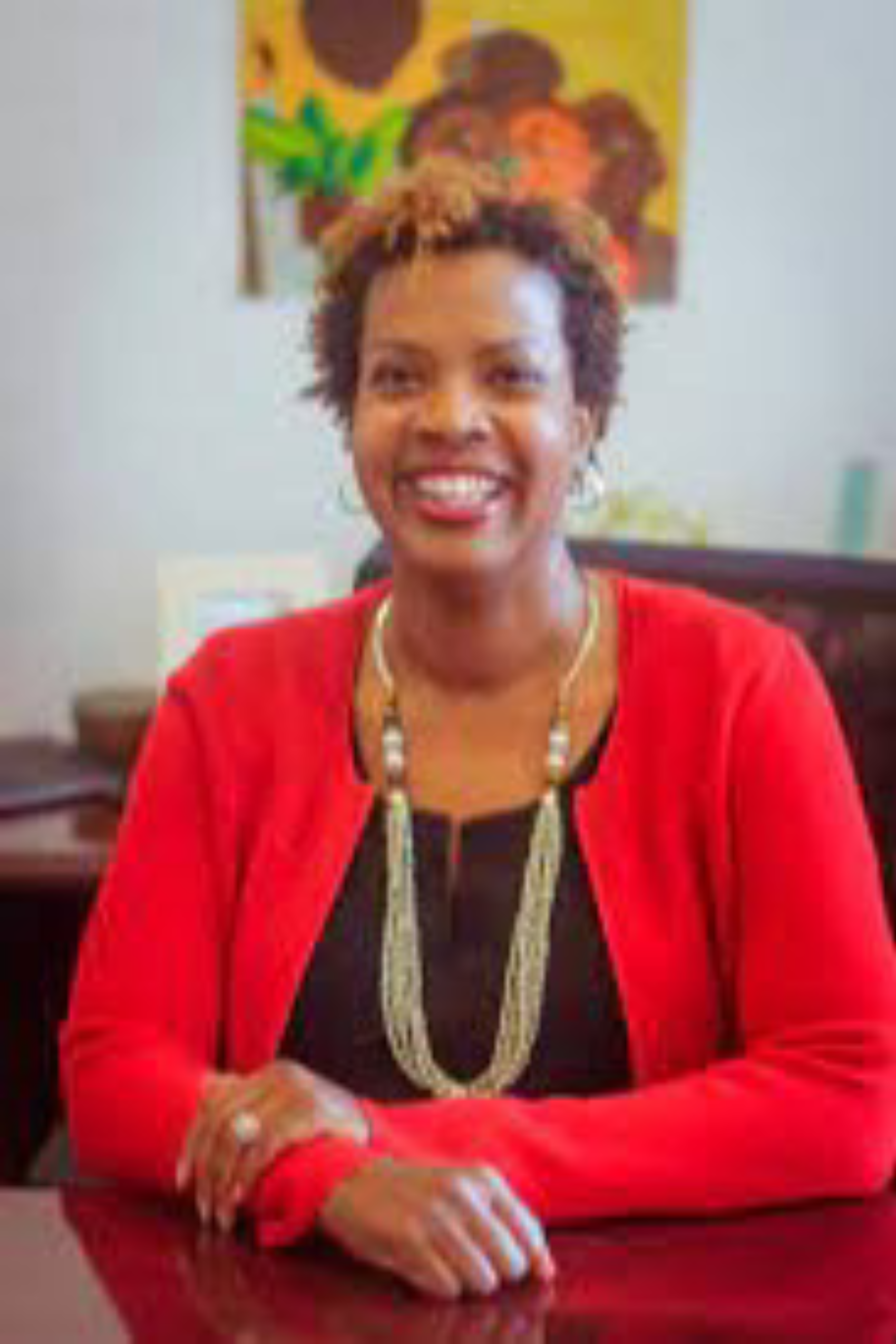 Winona Bynum, R.D.N., is the executive director of the Detroit Food Policy Council (DFPC) an education, advocacy and policy organization led by Detroiters committed to creating a sustainable, local food system that promotes food security, food justice and food sovereignty in the city of Detroit. Winona is a registered dietitian/nutritionist (RDN) and a graduate of Wayne State University’s Coordinated Program in Dietetics. She studied Public Health at Emory University’s Rollins School of Public Health and is currently pursuing a Master of Science in Ethical Leadership at the University of Detroit Mercy. She serves on the board of directors of Diversify Dietetics; a nonprofit with the mission of increasing the racial and ethnic diversity in the field of nutrition by empowering nutrition leaders of color and on the board of the Michigan Nutrition and Dietetics Institute (MNDI). She previously served as Chair of the National Organization of Blacks and Dietetics (NOBIDAN) and president of the Southeastern Michigan Dietetic Association (SEMDA). Winona is a native Detroiter who is dedicated to helping others gain access to the knowledge and foods needed to make healthier choices; and to helping to create and maintain a fair, equitable, and sustainably-operating food system in the City of Detroit so that doing the healthy thing is the easy thing.
Winona Bynum, R.D.N., is the executive director of the Detroit Food Policy Council (DFPC) an education, advocacy and policy organization led by Detroiters committed to creating a sustainable, local food system that promotes food security, food justice and food sovereignty in the city of Detroit. Winona is a registered dietitian/nutritionist (RDN) and a graduate of Wayne State University’s Coordinated Program in Dietetics. She studied Public Health at Emory University’s Rollins School of Public Health and is currently pursuing a Master of Science in Ethical Leadership at the University of Detroit Mercy. She serves on the board of directors of Diversify Dietetics; a nonprofit with the mission of increasing the racial and ethnic diversity in the field of nutrition by empowering nutrition leaders of color and on the board of the Michigan Nutrition and Dietetics Institute (MNDI). She previously served as Chair of the National Organization of Blacks and Dietetics (NOBIDAN) and president of the Southeastern Michigan Dietetic Association (SEMDA). Winona is a native Detroiter who is dedicated to helping others gain access to the knowledge and foods needed to make healthier choices; and to helping to create and maintain a fair, equitable, and sustainably-operating food system in the City of Detroit so that doing the healthy thing is the easy thing.
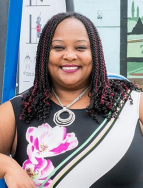 Kenyetta M. Campbell is the Executive Director for the Cody Rouge Community Action Alliance, Kenyetta M. Campbell oversees the Skillman Foundation Good Neighborhood Initiative in the Cody Rouge Community, a neighborhood in which she was born and raised. She is an integral part of the initiative that brokered a $400,000 deal to open Don Bosco Hall, a multi-service community center for youth development services to address needs and service gaps identified by the community. In 2003, Kenyetta founded of People Enriching Empowering People Services (PEEPS) Organization, raising money for scholarships for graduating seniors in the community. While possessing more than fourteen years of managerial and leadership experience, Kenyetta has developed a strong desire to create an alliance that focuses on leadership experience, entrepreneurial and financial literacy for youth locally, nationally and internationally. During the span of her career Kenyetta has been the recipient of numerous awards and has received special recognition for her efforts. Two awards that are dear to her heart are the Mayor’s Safe School, Safe Communities Heroes Award in 2012 and being recognized by Wayne County Commissioner Alisha Bell as Woman of the Year for District 8 in 2010. She was recently appointed as the Vice President of the Governing Council at Cody High School. Her most recent accomplishment was organizing a three Thanksgiving Food Basket giveaway that fed 500+ families through the Cody Rouge Family Connect. Kenyetta’s enthusiasm for revitalizing the community is contagious. As a long-time resident, she has a clear understanding of the local issues. Kenyetta M. Campbell stands out as a trusted leader in the Cody Rouge community and across the region. Her work ethic transcends boundaries drawing communities together. It is exciting to contemplate how her efforts will ripple throughout this community over the coming years and decades. She is best described as a “Trailblazer for Transformation.
Kenyetta M. Campbell is the Executive Director for the Cody Rouge Community Action Alliance, Kenyetta M. Campbell oversees the Skillman Foundation Good Neighborhood Initiative in the Cody Rouge Community, a neighborhood in which she was born and raised. She is an integral part of the initiative that brokered a $400,000 deal to open Don Bosco Hall, a multi-service community center for youth development services to address needs and service gaps identified by the community. In 2003, Kenyetta founded of People Enriching Empowering People Services (PEEPS) Organization, raising money for scholarships for graduating seniors in the community. While possessing more than fourteen years of managerial and leadership experience, Kenyetta has developed a strong desire to create an alliance that focuses on leadership experience, entrepreneurial and financial literacy for youth locally, nationally and internationally. During the span of her career Kenyetta has been the recipient of numerous awards and has received special recognition for her efforts. Two awards that are dear to her heart are the Mayor’s Safe School, Safe Communities Heroes Award in 2012 and being recognized by Wayne County Commissioner Alisha Bell as Woman of the Year for District 8 in 2010. She was recently appointed as the Vice President of the Governing Council at Cody High School. Her most recent accomplishment was organizing a three Thanksgiving Food Basket giveaway that fed 500+ families through the Cody Rouge Family Connect. Kenyetta’s enthusiasm for revitalizing the community is contagious. As a long-time resident, she has a clear understanding of the local issues. Kenyetta M. Campbell stands out as a trusted leader in the Cody Rouge community and across the region. Her work ethic transcends boundaries drawing communities together. It is exciting to contemplate how her efforts will ripple throughout this community over the coming years and decades. She is best described as a “Trailblazer for Transformation.
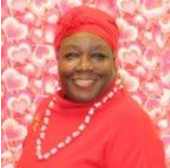 Clarencetta Clark-Carlisle is the Chief Executive Officer of Hard Court Hitters, CTA, a Detroit-based non-profit organization that strives to make our community a better place for the people that live here. Giving, sharing, and caring about others is how and why Hard Court Hitters, CTA was founded and still exists to that mission today. We work to support individuals, families, and communities in whatever capacity is needed. Knowing that others may need our help is what made me work hard to create this organization to work alongside me to support families. Clare also works to purchase larger vehicles, uniforms, team registration fees, and rent motorcoaches so that children in the communities could travel out of state. This gave children in need the chance to participate in tournaments and compete where they might not have gotten the chance. HCH became very important to Clare as she saw the need for families. They realized that not only can they help children with sports and uniforms, but that they can help them with food, clothing, shelter, and other resources. Working and uplifting the community is what Hard Court Hitters, CTA strives to do.
Clarencetta Clark-Carlisle is the Chief Executive Officer of Hard Court Hitters, CTA, a Detroit-based non-profit organization that strives to make our community a better place for the people that live here. Giving, sharing, and caring about others is how and why Hard Court Hitters, CTA was founded and still exists to that mission today. We work to support individuals, families, and communities in whatever capacity is needed. Knowing that others may need our help is what made me work hard to create this organization to work alongside me to support families. Clare also works to purchase larger vehicles, uniforms, team registration fees, and rent motorcoaches so that children in the communities could travel out of state. This gave children in need the chance to participate in tournaments and compete where they might not have gotten the chance. HCH became very important to Clare as she saw the need for families. They realized that not only can they help children with sports and uniforms, but that they can help them with food, clothing, shelter, and other resources. Working and uplifting the community is what Hard Court Hitters, CTA strives to do.
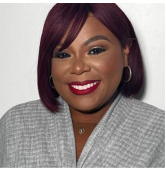 D’Anyai Carpenter is the Health & Wellness Program Manager at the Second Ebenezer Church Community Health and Wellness Hub. Ms. D’Anyai is entrusted with designing customized programming to meet the needs of our funders and participants. She is asked to rally volunteers and participants who both will benefit from engagement within the SEC Help Hub. She is entrusted with finding viable resources, community organizations and agencies to support the ongoing efforts of the SEC Help Hub.
D’Anyai Carpenter is the Health & Wellness Program Manager at the Second Ebenezer Church Community Health and Wellness Hub. Ms. D’Anyai is entrusted with designing customized programming to meet the needs of our funders and participants. She is asked to rally volunteers and participants who both will benefit from engagement within the SEC Help Hub. She is entrusted with finding viable resources, community organizations and agencies to support the ongoing efforts of the SEC Help Hub.
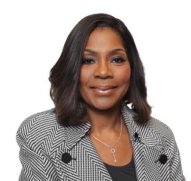 Tabitha Goodner is the Health & Wellness Director at Second Ebenezer Church Community Health and Wellness Hub. Ms. Tabitha is entrusted with aligning partners and community organization to provide readily available health and human services, for all people within the TriCounty (Wayne, Oakland and Macomb) areas that Second Ebenezer serves. She draws funding resources into the SEC Help Hub, through grants, donations, partnerships and sponsorships. The SEC Help Hub is a one-stop resource hub designed to walk willing participants through life’s journey of highs and lows. The role of the SEC Help Hub is to assist and not carry. We hear the priorities of each participant to assist their needs, never inserting a prognosis or diagnosis. We offer options for the revealed area(s) of priority(ies).
Tabitha Goodner is the Health & Wellness Director at Second Ebenezer Church Community Health and Wellness Hub. Ms. Tabitha is entrusted with aligning partners and community organization to provide readily available health and human services, for all people within the TriCounty (Wayne, Oakland and Macomb) areas that Second Ebenezer serves. She draws funding resources into the SEC Help Hub, through grants, donations, partnerships and sponsorships. The SEC Help Hub is a one-stop resource hub designed to walk willing participants through life’s journey of highs and lows. The role of the SEC Help Hub is to assist and not carry. We hear the priorities of each participant to assist their needs, never inserting a prognosis or diagnosis. We offer options for the revealed area(s) of priority(ies).
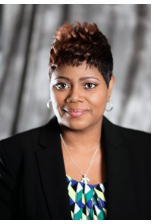 Kenyetta A. Cole is the President of the National Council of Negro Women (NCNW) – Detroit Section, leading a dedicated team of volunteers committed to empowering the Metropolitan Detroit community. Since its establishment in 1946, NCNW - Detroit Section has been instrumental in providing women, girls, and families with the resources and opportunities to enhance their economic and social well-being. Through initiatives ranging from education and entrepreneurship promotion to healthcare advocacy and civic engagement, NCNW - Detroit Section has positively impacted thousands of Michigan residents. These initiatives include vaccine clinics, health fairs, health awareness campaigns, food and water donation programs, and the A Taste of the African Heritage (ATOAH) Diet cooking series. With over 15 years in healthcare operations, she excels in technical systems and change management, specializing in electronic health records and data security. She is passionate about bridging the digital divide to ensure equitable access to technology and quality healthcare for underserved communities, thereby advancing social justice and healthcare equity.
Kenyetta A. Cole is the President of the National Council of Negro Women (NCNW) – Detroit Section, leading a dedicated team of volunteers committed to empowering the Metropolitan Detroit community. Since its establishment in 1946, NCNW - Detroit Section has been instrumental in providing women, girls, and families with the resources and opportunities to enhance their economic and social well-being. Through initiatives ranging from education and entrepreneurship promotion to healthcare advocacy and civic engagement, NCNW - Detroit Section has positively impacted thousands of Michigan residents. These initiatives include vaccine clinics, health fairs, health awareness campaigns, food and water donation programs, and the A Taste of the African Heritage (ATOAH) Diet cooking series. With over 15 years in healthcare operations, she excels in technical systems and change management, specializing in electronic health records and data security. She is passionate about bridging the digital divide to ensure equitable access to technology and quality healthcare for underserved communities, thereby advancing social justice and healthcare equity.
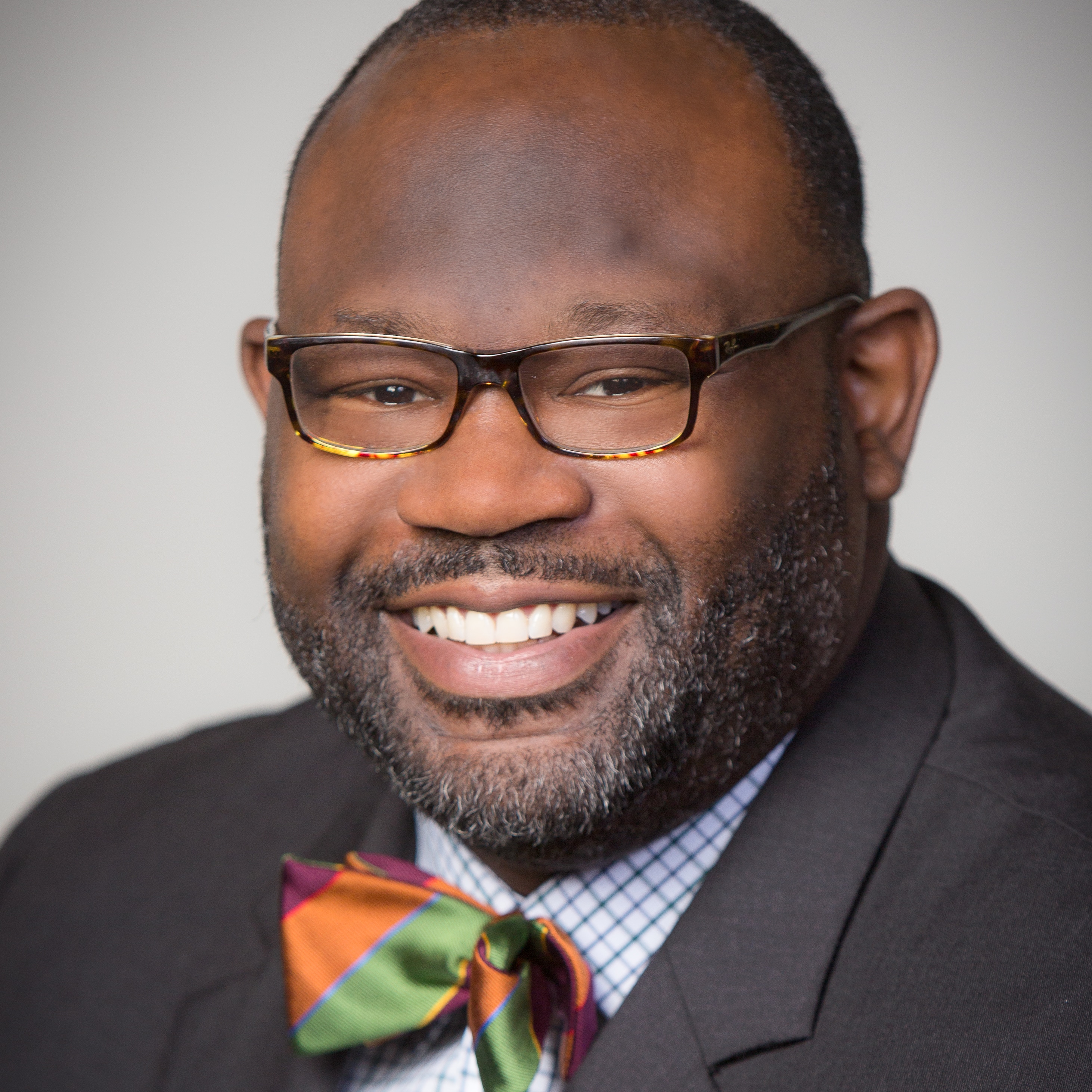 Arthur Hampton, M.Ed., is the Director of Health Equity at Southeastern Michigan Health Association. Mr. Hampton is an experienced diversity, equity, and inclusion professional who began his career in higher education. With nearly 2 decades of experience in nonprofits and education, his career led to his social impact work, serving as the Stakeholder Relations Manager with the Stand Together Foundation and a Regional Impact Officer with the Social Determinants of Health Institute. Arthur currently serves as the Director of Health Equity at the Southeastern Michigan Health Association and leads collective impact projects by exploring activities that reduce health inequities and coordinating strategic partnerships to increase visibility of and locate resources for vulnerable populations. Arthur is passionate about bringing resources to those in need and building relationships that catalyze change and community transformation.
Arthur Hampton, M.Ed., is the Director of Health Equity at Southeastern Michigan Health Association. Mr. Hampton is an experienced diversity, equity, and inclusion professional who began his career in higher education. With nearly 2 decades of experience in nonprofits and education, his career led to his social impact work, serving as the Stakeholder Relations Manager with the Stand Together Foundation and a Regional Impact Officer with the Social Determinants of Health Institute. Arthur currently serves as the Director of Health Equity at the Southeastern Michigan Health Association and leads collective impact projects by exploring activities that reduce health inequities and coordinating strategic partnerships to increase visibility of and locate resources for vulnerable populations. Arthur is passionate about bringing resources to those in need and building relationships that catalyze change and community transformation.
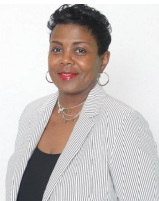 Jeanine Hatcher is one of several founders and has served as the Executive Director of GenesisHOPE since 2008. The nonprofit community development organization promotes healthy living and creates equitable resilient communities for residents of Islandview, the Villages of Detroit, MI and adjacent neighborhoods (48207, 48213, 48214). GenesisHOPE are community development professionals leading inclusive and equitable development of community spaces for living, working and play. They're also community health workers who educate and support people in enjoying healthier lifestyles. GenesisHOPE helps people and communities to fill gaps in families’ finances and necessities, lack of access to health care, and other barriers to enjoying a healthier home and environment. GenesisHOPE works collaboratively to eliminate unfair individual, institutional and systemic conditions that cause inequities. Jeanine is charged with advancing health equity to achieve a vision of healthy people and healthy places. Jeanine has over 30 years of experience in the business and nonprofit sectors. She “brings an entrepreneurial view” to the mission of social justice. Jeanine started her marketing firm, ImageSetter in 1984, which she still operates today. She owned and operated with her husband the first African American owned Midas franchise in Michigan, grossing over a million per year. And, she was the Vice President of First Impressions, a hospitality staffing agency she helped start with her sister-in-law with locations in Detroit and Atlanta.
Jeanine Hatcher is one of several founders and has served as the Executive Director of GenesisHOPE since 2008. The nonprofit community development organization promotes healthy living and creates equitable resilient communities for residents of Islandview, the Villages of Detroit, MI and adjacent neighborhoods (48207, 48213, 48214). GenesisHOPE are community development professionals leading inclusive and equitable development of community spaces for living, working and play. They're also community health workers who educate and support people in enjoying healthier lifestyles. GenesisHOPE helps people and communities to fill gaps in families’ finances and necessities, lack of access to health care, and other barriers to enjoying a healthier home and environment. GenesisHOPE works collaboratively to eliminate unfair individual, institutional and systemic conditions that cause inequities. Jeanine is charged with advancing health equity to achieve a vision of healthy people and healthy places. Jeanine has over 30 years of experience in the business and nonprofit sectors. She “brings an entrepreneurial view” to the mission of social justice. Jeanine started her marketing firm, ImageSetter in 1984, which she still operates today. She owned and operated with her husband the first African American owned Midas franchise in Michigan, grossing over a million per year. And, she was the Vice President of First Impressions, a hospitality staffing agency she helped start with her sister-in-law with locations in Detroit and Atlanta.
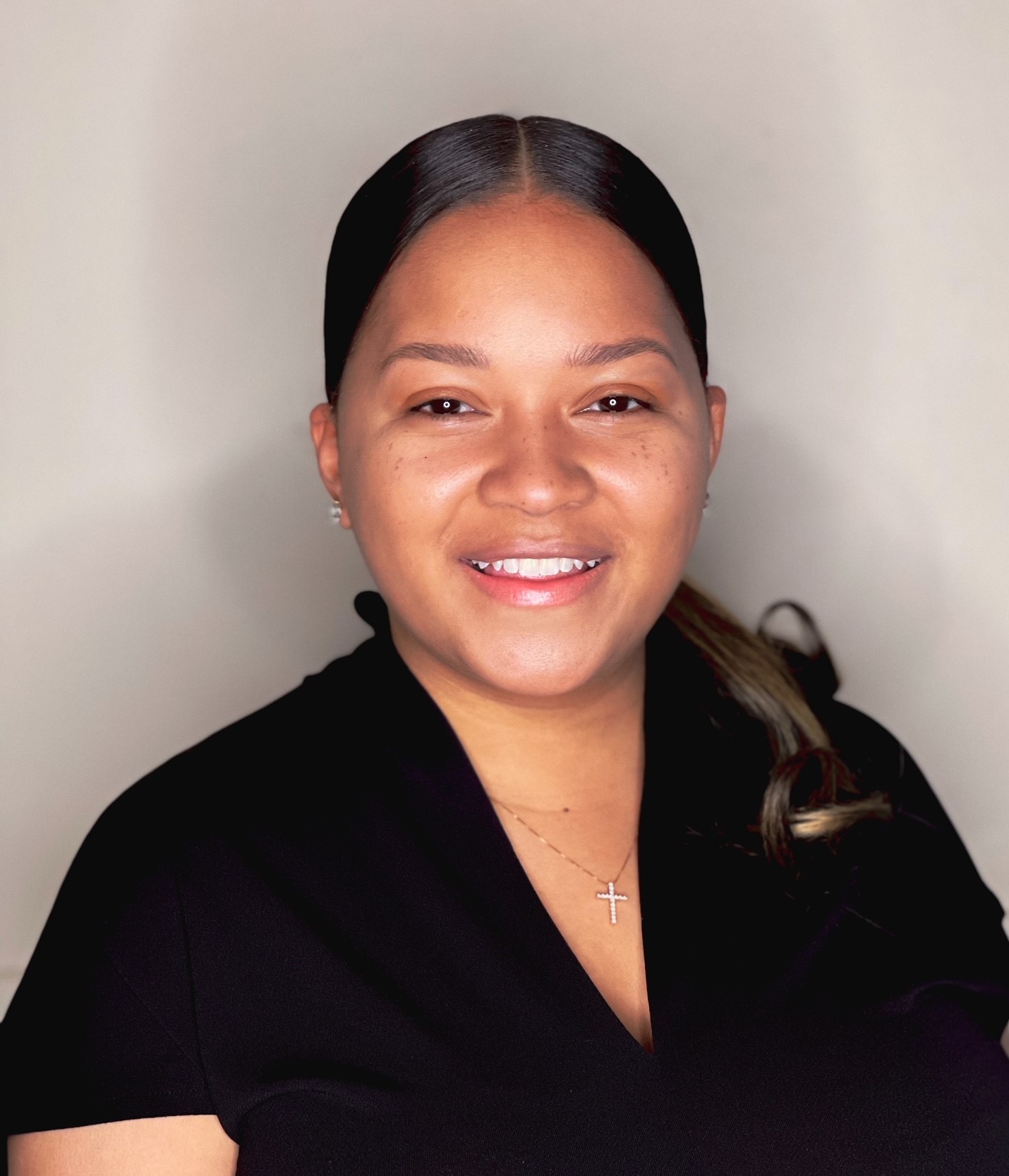 Chanelle Ward is the Director of Policy, Systems, and Environmental Change Collectives at GenesisHOPE, a nonprofit organization that cultivates healthy living and creates resilient communities in Detroit's Islandview, the Villages, and neighboring areas. With a commitment to health equity and community empowerment, Chanelle draws upon her diverse experiences to tackle disparities within communities like the one where she grew up. Hailing from Detroit, Chanelle's upbringing exposed her to the stark realities faced by communities of color, igniting her fervor for social justice. Chanelle obtained a bachelor’s degree from Tennessee State University, followed by a tenure as a high school educator. This allowed her to gain profound insights into the far-reaching effects of health inequities on individuals' well-being. She was motivated to extend her impact beyond the classroom and transitioned into community development and health work, focusing on addressing critical social determinants of health. Her work evolved into pioneering research, employing community engagement to explore the links between health disparities and chronic pain conditions like lupus, fibromyalgia, and sickle cell disease. In her current capacity at GenesisHOPE, Chanelle plans to harness the power of strategic advocacy and community mobilization to shape a future where health and wellness are accessible to all, irrespective of background or circumstance.
Chanelle Ward is the Director of Policy, Systems, and Environmental Change Collectives at GenesisHOPE, a nonprofit organization that cultivates healthy living and creates resilient communities in Detroit's Islandview, the Villages, and neighboring areas. With a commitment to health equity and community empowerment, Chanelle draws upon her diverse experiences to tackle disparities within communities like the one where she grew up. Hailing from Detroit, Chanelle's upbringing exposed her to the stark realities faced by communities of color, igniting her fervor for social justice. Chanelle obtained a bachelor’s degree from Tennessee State University, followed by a tenure as a high school educator. This allowed her to gain profound insights into the far-reaching effects of health inequities on individuals' well-being. She was motivated to extend her impact beyond the classroom and transitioned into community development and health work, focusing on addressing critical social determinants of health. Her work evolved into pioneering research, employing community engagement to explore the links between health disparities and chronic pain conditions like lupus, fibromyalgia, and sickle cell disease. In her current capacity at GenesisHOPE, Chanelle plans to harness the power of strategic advocacy and community mobilization to shape a future where health and wellness are accessible to all, irrespective of background or circumstance.
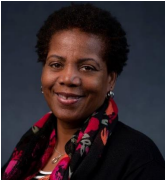 Stephanie Johnson-Cobb, Deputy Director, HOPE Village Revitalization, a native Detroiter, is driven by a passion to eradicate the physical, social, and economic inequities in the neighborhood in which she grew up, raised her family and still resides. Stephanie holds a Bachelor of Arts degree in English from Wayne State University and began volunteering and working as a community activist twenty-three years ago when she reactivated the block club on her street and served as president for two years. For over a decade, Stephanie served as president of the Lodge Davison Linwood Oakman Association of Block Clubs for Renters and Homeowners. She also served as the Coordinator of the Ford LaSalle Park Revitalization Committee for ten years. This is a group that worked to revitalize the local playground. She is an active member of 482HEAT and 482FACT teams working on educational justice in the HOPE Village and beyond. She also sits on the Board of Directors for Detroit Suzuki Academy of Music Program. Stephanie worked for many years in Focus: HOPE’s Community Development Department organizing, remediating blight and helping to create a Strategic Vision and Plan for the HOPE Village Neighborhood. In November 2019, Focus: HOPE’s Community Development work spun off from its parent organization to form HOPE Village Revitalization (HVR) Community Development Corporation where Stephanie now serves as the Deputy Director. HVR’s mission is to move the HOPE Village forward in a way that mitigates disparities in wealth, privilege, and educational resources. HOPE Village Revitalization supports Fresh and Local Food Systems - Farmers Market, Place Making, a Community Heath Initiative and Sustainable Housing/Energy Efficiency.
Stephanie Johnson-Cobb, Deputy Director, HOPE Village Revitalization, a native Detroiter, is driven by a passion to eradicate the physical, social, and economic inequities in the neighborhood in which she grew up, raised her family and still resides. Stephanie holds a Bachelor of Arts degree in English from Wayne State University and began volunteering and working as a community activist twenty-three years ago when she reactivated the block club on her street and served as president for two years. For over a decade, Stephanie served as president of the Lodge Davison Linwood Oakman Association of Block Clubs for Renters and Homeowners. She also served as the Coordinator of the Ford LaSalle Park Revitalization Committee for ten years. This is a group that worked to revitalize the local playground. She is an active member of 482HEAT and 482FACT teams working on educational justice in the HOPE Village and beyond. She also sits on the Board of Directors for Detroit Suzuki Academy of Music Program. Stephanie worked for many years in Focus: HOPE’s Community Development Department organizing, remediating blight and helping to create a Strategic Vision and Plan for the HOPE Village Neighborhood. In November 2019, Focus: HOPE’s Community Development work spun off from its parent organization to form HOPE Village Revitalization (HVR) Community Development Corporation where Stephanie now serves as the Deputy Director. HVR’s mission is to move the HOPE Village forward in a way that mitigates disparities in wealth, privilege, and educational resources. HOPE Village Revitalization supports Fresh and Local Food Systems - Farmers Market, Place Making, a Community Heath Initiative and Sustainable Housing/Energy Efficiency.
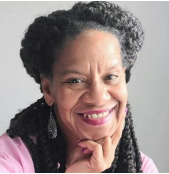 Jametta Lilly, M.P.A. , is the Chief Executive Officer of the Detroit Parent Network, a network of parents working to build and engage parents and others to ensure every child has a champion. Lilly's 30-year career includes positions as the chief executive officer and co-founder of Wayne Children's Healthcare Access Program; executive director for Detroit Healthcare Career Center; and assistant director for the Wayne County Head Start- Early Head Start among numerous consulting roles with various institutions and organizations. A persistent advocate for equity and collaboration, Lilly is known for advancing policies, programs, and practices that positively impact vulnerable children and families.
Jametta Lilly, M.P.A. , is the Chief Executive Officer of the Detroit Parent Network, a network of parents working to build and engage parents and others to ensure every child has a champion. Lilly's 30-year career includes positions as the chief executive officer and co-founder of Wayne Children's Healthcare Access Program; executive director for Detroit Healthcare Career Center; and assistant director for the Wayne County Head Start- Early Head Start among numerous consulting roles with various institutions and organizations. A persistent advocate for equity and collaboration, Lilly is known for advancing policies, programs, and practices that positively impact vulnerable children and families.
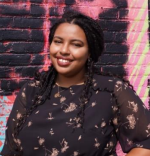 Ki-Jana Malone, B.S., is the Community Strategist for Aetna Medicaid Community CARES Team. Ki-Jana is a native Metro-Detroiter, who graduated from Wayne State University in May 2019 as an NIH-ReBUILDetroit Scholar with a BS in Public Health and a minor in Health Psychology. A passionate and motivated public health professional with a background in STI/HIV prevention and education, she educated hundreds of Detroit community members on their health options at the Detroit Public Health STD Clinic. Ki-Jana is now continuing to serve the Metro-Detroit area as a Community Strategist for Aetna, Medicaid. In this role, she continues to contribute her knowledge and expertise in community engagement within a local community-oriented team focused on social determinants of health and health equity.
Ki-Jana Malone, B.S., is the Community Strategist for Aetna Medicaid Community CARES Team. Ki-Jana is a native Metro-Detroiter, who graduated from Wayne State University in May 2019 as an NIH-ReBUILDetroit Scholar with a BS in Public Health and a minor in Health Psychology. A passionate and motivated public health professional with a background in STI/HIV prevention and education, she educated hundreds of Detroit community members on their health options at the Detroit Public Health STD Clinic. Ki-Jana is now continuing to serve the Metro-Detroit area as a Community Strategist for Aetna, Medicaid. In this role, she continues to contribute her knowledge and expertise in community engagement within a local community-oriented team focused on social determinants of health and health equity.
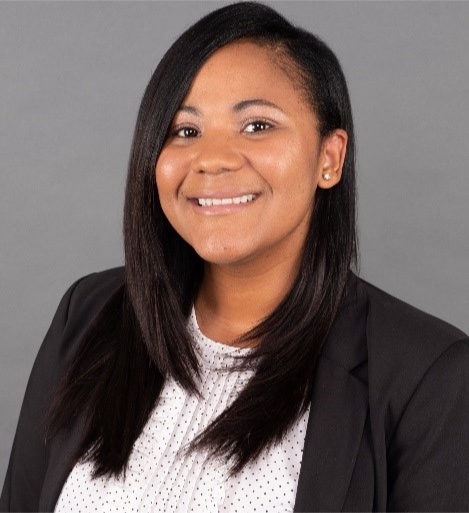 Chamika Phillips is the Diversity, Equity & Inclusion Administrator at Detroit Wayne Integrated Health Network (DWIHN) with over 12 years’ experience helping community members throughout Michigan. Specializing in Human Resources and DEI, Chamika uses that experience to work collaboratively to develop and implement strategies and initiatives that advance diversity and inclusivity. Chamika’s goal is to help create inclusive and equitable environments as we help the communities we serve. When she’s not at DWIHN, Chamika is an avid reader and loves spending time with her family.
Chamika Phillips is the Diversity, Equity & Inclusion Administrator at Detroit Wayne Integrated Health Network (DWIHN) with over 12 years’ experience helping community members throughout Michigan. Specializing in Human Resources and DEI, Chamika uses that experience to work collaboratively to develop and implement strategies and initiatives that advance diversity and inclusivity. Chamika’s goal is to help create inclusive and equitable environments as we help the communities we serve. When she’s not at DWIHN, Chamika is an avid reader and loves spending time with her family.
Erica Raleigh is the Assistant Director of Projects for Data Driven Detroit. She has led numerous projects for Data Driven Detroit, including the Woodward Corridor Initiative and the One D Scorecard, and worked to create internal structures for project management, accountability, quality control, data infrastructure, and governance, among others. Erica also manages the day-to-day operations of Data Driven Detroit. Erica is deeply committed to the equitable access of information for data-driven decision-making. She holds a Master of Urban Planning from Wayne State University and a Bachelor of Arts in Hispanic Studies from the University of Michigan.
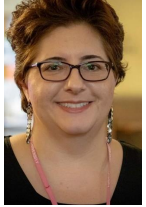 Lisa Saigh is the Wellness Clinic Manager at St. Patrick Senior Center (SPSC) in Midtown Detroit and a clinical instructor for undergraduate nursing students at Madonna University. She has been a nurse for 25 years, including over 10 years of clinical research experience. She earned a BSN at University of Detroit Mercy and she is working on a DNP in adult-gerontology primary care at Wayne State University. Lisa works with community-dwelling older adults, ages 55 through over 100 years old, focusing on healthy lifestyle promotion and maintaining independent living. Currently, Lisa is collaborating with SPSC, the Detroit Parks & Recreation Department and Perry Outreach Center to expand senior support services and improve food security for older adults living in Southwest Detroit. Lisa is also seeking new opportunities to connect SPSC's older adults with academic and community organizations, to promote community-oriented research and develop innovative senior programs.
Lisa Saigh is the Wellness Clinic Manager at St. Patrick Senior Center (SPSC) in Midtown Detroit and a clinical instructor for undergraduate nursing students at Madonna University. She has been a nurse for 25 years, including over 10 years of clinical research experience. She earned a BSN at University of Detroit Mercy and she is working on a DNP in adult-gerontology primary care at Wayne State University. Lisa works with community-dwelling older adults, ages 55 through over 100 years old, focusing on healthy lifestyle promotion and maintaining independent living. Currently, Lisa is collaborating with SPSC, the Detroit Parks & Recreation Department and Perry Outreach Center to expand senior support services and improve food security for older adults living in Southwest Detroit. Lisa is also seeking new opportunities to connect SPSC's older adults with academic and community organizations, to promote community-oriented research and develop innovative senior programs.
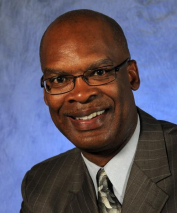 David Underwood is the Director of the Detroit Community Care Network (DCCN). He is a retired sales and marketing executive, with 23 years’ experience serving diverse communities and major business customers. He is a change agent who builds strategic collaborations among stakeholders in government, education, non-profits, foundations, healthcare, private and public institutions, and others. Today, he leads Detroit Community Care Network (DCCN), a faith-based organization that serves those in need in our community connecting them to programs, services, resources, and information that has a positive impact in their lives. Utilizing ‘Transition to Success,’ a standard of care, as its foundation, DCCN deals directly with the Social Determinants of Health of those served. DCCN is the community engagement partner in the Wayne State University/Wayne Health LEAP-HTN project. David is a committee member for the RESTORE Community Engagement Council. He serves on the Advisory Board of Matrix Human Services after 13 years as a Matrix board member. He also serves as President of Tri-Unity Community Development Corporation, the non-profit community development arm of Third New Hope Baptist Church. David is a past recipient of Michigan Chronicle’s 2009 “Men of Excellence Award”. This award is given to local African American men who inspire others through vision and leadership, exceptional achievements, and participation in community service. A husband, father of four (4), David enjoys golf and dancing in his spare time.
David Underwood is the Director of the Detroit Community Care Network (DCCN). He is a retired sales and marketing executive, with 23 years’ experience serving diverse communities and major business customers. He is a change agent who builds strategic collaborations among stakeholders in government, education, non-profits, foundations, healthcare, private and public institutions, and others. Today, he leads Detroit Community Care Network (DCCN), a faith-based organization that serves those in need in our community connecting them to programs, services, resources, and information that has a positive impact in their lives. Utilizing ‘Transition to Success,’ a standard of care, as its foundation, DCCN deals directly with the Social Determinants of Health of those served. DCCN is the community engagement partner in the Wayne State University/Wayne Health LEAP-HTN project. David is a committee member for the RESTORE Community Engagement Council. He serves on the Advisory Board of Matrix Human Services after 13 years as a Matrix board member. He also serves as President of Tri-Unity Community Development Corporation, the non-profit community development arm of Third New Hope Baptist Church. David is a past recipient of Michigan Chronicle’s 2009 “Men of Excellence Award”. This award is given to local African American men who inspire others through vision and leadership, exceptional achievements, and participation in community service. A husband, father of four (4), David enjoys golf and dancing in his spare time.
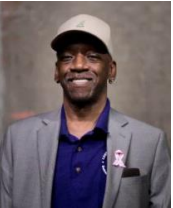 Cornelius Wilson is the Programs & Events Director at MiGEN (formerly SAGE Metro Detroit). Previously, he served as the Lead Housing Coordinator for the Detroit Health Department’s HAPI Housing Program. He has an extensive 25+ year background working in human services. He was the founder and Executive Director of a local HIV/AIDS advocacy and service organization (Men of Color Motivational Group). He has also served at various other organizations dedicated to housing, recovery management, and supportive services for men living with or at high risk of contracting HIV. Mr. Wilson earned an associate degree in Business Administration from the Detroit Business Institute. He is very active in the local community sharing his knowledge and expertise through several boards and committees, serving as a Board member on the Detroit planning body for the Southeast Michigan HIV/AIDS Council (SEMHAC) and is their finance committee co-chair.
Cornelius Wilson is the Programs & Events Director at MiGEN (formerly SAGE Metro Detroit). Previously, he served as the Lead Housing Coordinator for the Detroit Health Department’s HAPI Housing Program. He has an extensive 25+ year background working in human services. He was the founder and Executive Director of a local HIV/AIDS advocacy and service organization (Men of Color Motivational Group). He has also served at various other organizations dedicated to housing, recovery management, and supportive services for men living with or at high risk of contracting HIV. Mr. Wilson earned an associate degree in Business Administration from the Detroit Business Institute. He is very active in the local community sharing his knowledge and expertise through several boards and committees, serving as a Board member on the Detroit planning body for the Southeast Michigan HIV/AIDS Council (SEMHAC) and is their finance committee co-chair.
Lena Barkley (CVS Health WITC)
Layna Gardner-Lott (CVS Health WITC)
Detroit Community Health Equity Alliance
Community Resident Representatives
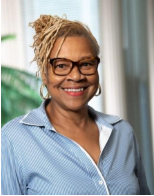 Deborah Stewart Anderson is a community educator and organizer. Deborah considers herself a natural born environmentalist. She has worked in diverse positions serving her community in education, advocacy and has led Literacy programming for the nonprofit Detroit Literacy Coalition. Deborah is a lifetime Detroiter, a graduate of Detroit Public Schools and Wayne State University. She has worked with Zero Waste Detroit since early 2020 and is responsible for outreach and education of residential and commercial customers for the Detroit Recycles program through the City of Detroit Public Works. Deborah has a deep concern for environmental health and equity. Deborah’s work extends to the pursuit of zero waste as it relates to the environment and climate change. Her interests also include but are not limited to human research and community engagement.
Deborah Stewart Anderson is a community educator and organizer. Deborah considers herself a natural born environmentalist. She has worked in diverse positions serving her community in education, advocacy and has led Literacy programming for the nonprofit Detroit Literacy Coalition. Deborah is a lifetime Detroiter, a graduate of Detroit Public Schools and Wayne State University. She has worked with Zero Waste Detroit since early 2020 and is responsible for outreach and education of residential and commercial customers for the Detroit Recycles program through the City of Detroit Public Works. Deborah has a deep concern for environmental health and equity. Deborah’s work extends to the pursuit of zero waste as it relates to the environment and climate change. Her interests also include but are not limited to human research and community engagement.
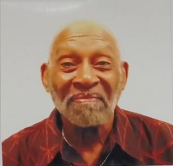 Henry L. Cade was born, raised, and currently resides in Rosedale Park in Northwest Detroit. Although recently retired in 2021, Henry spent 54 years in various educational positions including: K-12 Elementary Special Education Instruction; Central Office Consulting; Both College & University Educational Consulting; Regional, National, and International Consulting; Wayne County Regional Educational Service Agency for twenty-two years and finally rounded out his service with fifteen years of Statewide Consulting with the Michigan Department of Education. Currently, he serves in supporting the development of youth and the community through two Optimist Clubs in Metro Detroit and multiple Ministries through his Church, Fellowship Chapel also in Northwest Detroit. He recently became actively involved with three Wayne State University advisory boards (HCAB, CHEAC & CHECK-UP). Finally, as time permits, Henry is an avid urban gardener, growing a variety of delicious vegetables which he shares with family, friends, neighbors, colleagues and pesky critters. He looks forward to continuing his efforts to educate and positively influence underserved communities and healthcare agencies. We need to significantly reduce healthcare access inequities which disproportionately negatively impact minorities and less affluent individuals.
Henry L. Cade was born, raised, and currently resides in Rosedale Park in Northwest Detroit. Although recently retired in 2021, Henry spent 54 years in various educational positions including: K-12 Elementary Special Education Instruction; Central Office Consulting; Both College & University Educational Consulting; Regional, National, and International Consulting; Wayne County Regional Educational Service Agency for twenty-two years and finally rounded out his service with fifteen years of Statewide Consulting with the Michigan Department of Education. Currently, he serves in supporting the development of youth and the community through two Optimist Clubs in Metro Detroit and multiple Ministries through his Church, Fellowship Chapel also in Northwest Detroit. He recently became actively involved with three Wayne State University advisory boards (HCAB, CHEAC & CHECK-UP). Finally, as time permits, Henry is an avid urban gardener, growing a variety of delicious vegetables which he shares with family, friends, neighbors, colleagues and pesky critters. He looks forward to continuing his efforts to educate and positively influence underserved communities and healthcare agencies. We need to significantly reduce healthcare access inequities which disproportionately negatively impact minorities and less affluent individuals.
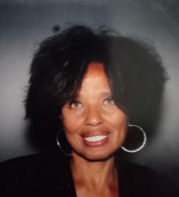 Joyce A. Driver is a native of Etta, Mississippi, whose family migrated to the State of Michigan and the City of Detroit in the late 1960s. She has been a resident of Detroit, Michigan for approximately 50 years. Since working for a Public Relations Company and the service Industry, Joyce has been fortunate to have done contractual work, whether it is with a private sector with the social event(s) or special event(s) such as the auto show. What's most important is the previous but most recent involvements include committees/councils such as Partners For Prostate Health, and New Center Circle of Care. Both of these groups incorporated the community and health professionals as a clearinghouse and a connective effort to assist the community with the processes and challenges of health issues. In addition, just to mention a few of the community service associations/affiliations; currently, The Police Community Relations Council, and some of her past/previous efforts with the 10th Precinct Community Relations Association Executive Board Member, SCLC, NAACP, Lafayette Park Kiwanis, Optimist Club. The efforts of D-CHEA captured Ms. Driver's attention and interest after attending some of the community sessions. She has always wanted to assist with community awareness and engagement. Most of us have heard the saying, people do better when they know better. Joyce believes that when people know and understand, it causes a change in mindset and hopefully an incentive to elevate and improve. It is important that people have good information to make better decisions. These collectives are some of Joyce's passions. When Ms. Driver is not in the community, she enjoys quiet time, scenic riding, traveling, dining, and dancing.
Joyce A. Driver is a native of Etta, Mississippi, whose family migrated to the State of Michigan and the City of Detroit in the late 1960s. She has been a resident of Detroit, Michigan for approximately 50 years. Since working for a Public Relations Company and the service Industry, Joyce has been fortunate to have done contractual work, whether it is with a private sector with the social event(s) or special event(s) such as the auto show. What's most important is the previous but most recent involvements include committees/councils such as Partners For Prostate Health, and New Center Circle of Care. Both of these groups incorporated the community and health professionals as a clearinghouse and a connective effort to assist the community with the processes and challenges of health issues. In addition, just to mention a few of the community service associations/affiliations; currently, The Police Community Relations Council, and some of her past/previous efforts with the 10th Precinct Community Relations Association Executive Board Member, SCLC, NAACP, Lafayette Park Kiwanis, Optimist Club. The efforts of D-CHEA captured Ms. Driver's attention and interest after attending some of the community sessions. She has always wanted to assist with community awareness and engagement. Most of us have heard the saying, people do better when they know better. Joyce believes that when people know and understand, it causes a change in mindset and hopefully an incentive to elevate and improve. It is important that people have good information to make better decisions. These collectives are some of Joyce's passions. When Ms. Driver is not in the community, she enjoys quiet time, scenic riding, traveling, dining, and dancing.
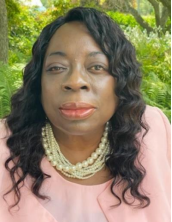 Karen Solomon Edwards is a native Detroiter, retired public health administrator, and kidney transplant recipient. Serves as a consumer advisor, patient advocate, mentor, and kidney ambassador. Currently, a vice-lead for the National Kidney Foundation’s Region V Kidney Action Coalition, which serves the States of Ohio, Illinois, Kentucky, Indiana, and Michigan. Serves as a community partner of Karmanos Cancer Institute’s Office of Cancer Health Equity and Community Engagement (OCHECE)’s Oakland County Cancer Action Council, a member of the African American Resilience in Surviving Cancer (ARISE) Cancer Action Council, and the COVID-19 Council. Karen also serves as a consumer advocate and board member of Strive Health, LLC for the States of Michigan and Texas. Most recently, she is concluding a NKF Scientific Program Initiative on Improving Vaccination in Chronic Kidney Disease. Interests include, reading, writing, and traveling. She is a member of the Lions Club, Toastmasters, Gamma Phi Delta Sorority, Incorporated, and approaching her 50th year as a member of Alpha Kappa Alpha Sorority, Incorporated in 2024. She is also eagerly anticipating celebrating her 50th high school graduation this summer, August 2023 from Cass Technical High School. Notably, her greatest passion is being with her Hana Nicole, granddaughter who is her mentor. She pushed, praised, and prayed for her Nana through her most turbulent times during her kidney journey.
Karen Solomon Edwards is a native Detroiter, retired public health administrator, and kidney transplant recipient. Serves as a consumer advisor, patient advocate, mentor, and kidney ambassador. Currently, a vice-lead for the National Kidney Foundation’s Region V Kidney Action Coalition, which serves the States of Ohio, Illinois, Kentucky, Indiana, and Michigan. Serves as a community partner of Karmanos Cancer Institute’s Office of Cancer Health Equity and Community Engagement (OCHECE)’s Oakland County Cancer Action Council, a member of the African American Resilience in Surviving Cancer (ARISE) Cancer Action Council, and the COVID-19 Council. Karen also serves as a consumer advocate and board member of Strive Health, LLC for the States of Michigan and Texas. Most recently, she is concluding a NKF Scientific Program Initiative on Improving Vaccination in Chronic Kidney Disease. Interests include, reading, writing, and traveling. She is a member of the Lions Club, Toastmasters, Gamma Phi Delta Sorority, Incorporated, and approaching her 50th year as a member of Alpha Kappa Alpha Sorority, Incorporated in 2024. She is also eagerly anticipating celebrating her 50th high school graduation this summer, August 2023 from Cass Technical High School. Notably, her greatest passion is being with her Hana Nicole, granddaughter who is her mentor. She pushed, praised, and prayed for her Nana through her most turbulent times during her kidney journey.
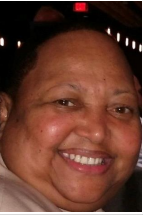 Karen Young, a retired Real Estate Broker, is a lifelong Detroit resident. Karen graduated from Cass Technical High School and Mercy College where she received her Bachelor Degree in Political Science. Ms. Young is a passionate community advocate that is currently very involved in numerous community initiatives. Initiatives that Ms. Young has participated in include, the Wayne State University (WSU) Hypertension Community Advisory Board (HCAB) and the Leadership Committee, the Achieve Greater Community Health Equity Action Council (CHEAC) and the Advisory Oversite Committee (AOC), the State of Michigan COVID Mortality Taskforce, Karmanos Cancer Action Council, the Detroit Area Agency on Aging Meals on Wheels program, and numerous community programs sponsored by the Salvation Army. In addition, Ms. Young served as a community board member for the WSU Institutional Review Board (IRB) that reviewed research pertaining to human subject research. Karen was also part of the WSU Medical School Interviewing Committee tasked with interviewing medical school applicants seeking admission into medical school. In her many activities, Ms. Young has taken grant writing class, participated in the Build Your Capacity Program focusing on hypertension, contributed to the reviewing of Letters of Intent for sub-awards for the P-50 grant and served as a Moderator for Microaggression classes. Karen is a spiritual person who is an avid reader. In her spare time, she enjoys board games, traveling and spending time with family and friends.
Karen Young, a retired Real Estate Broker, is a lifelong Detroit resident. Karen graduated from Cass Technical High School and Mercy College where she received her Bachelor Degree in Political Science. Ms. Young is a passionate community advocate that is currently very involved in numerous community initiatives. Initiatives that Ms. Young has participated in include, the Wayne State University (WSU) Hypertension Community Advisory Board (HCAB) and the Leadership Committee, the Achieve Greater Community Health Equity Action Council (CHEAC) and the Advisory Oversite Committee (AOC), the State of Michigan COVID Mortality Taskforce, Karmanos Cancer Action Council, the Detroit Area Agency on Aging Meals on Wheels program, and numerous community programs sponsored by the Salvation Army. In addition, Ms. Young served as a community board member for the WSU Institutional Review Board (IRB) that reviewed research pertaining to human subject research. Karen was also part of the WSU Medical School Interviewing Committee tasked with interviewing medical school applicants seeking admission into medical school. In her many activities, Ms. Young has taken grant writing class, participated in the Build Your Capacity Program focusing on hypertension, contributed to the reviewing of Letters of Intent for sub-awards for the P-50 grant and served as a Moderator for Microaggression classes. Karen is a spiritual person who is an avid reader. In her spare time, she enjoys board games, traveling and spending time with family and friends.
Kevin “Coach Kellogg” Jones is a community activist and organizer and the founder of the non-profit organization, Jonsin For A Greater Change, which aims to build stronger communities by facilitating connection among residents to discover common interests that support collective growth. Mr. Jones is also a co-founder of Freedom Dreams and board member of the Greater Eastern Market District.
Myrtle Thompson Curtis is a co-founder of Feedom Freedom Growers, a community group and resource committed to growing community relationships.
Detroit Community Health Equity Alliance
Wayne State Faculty/Staff Representatives
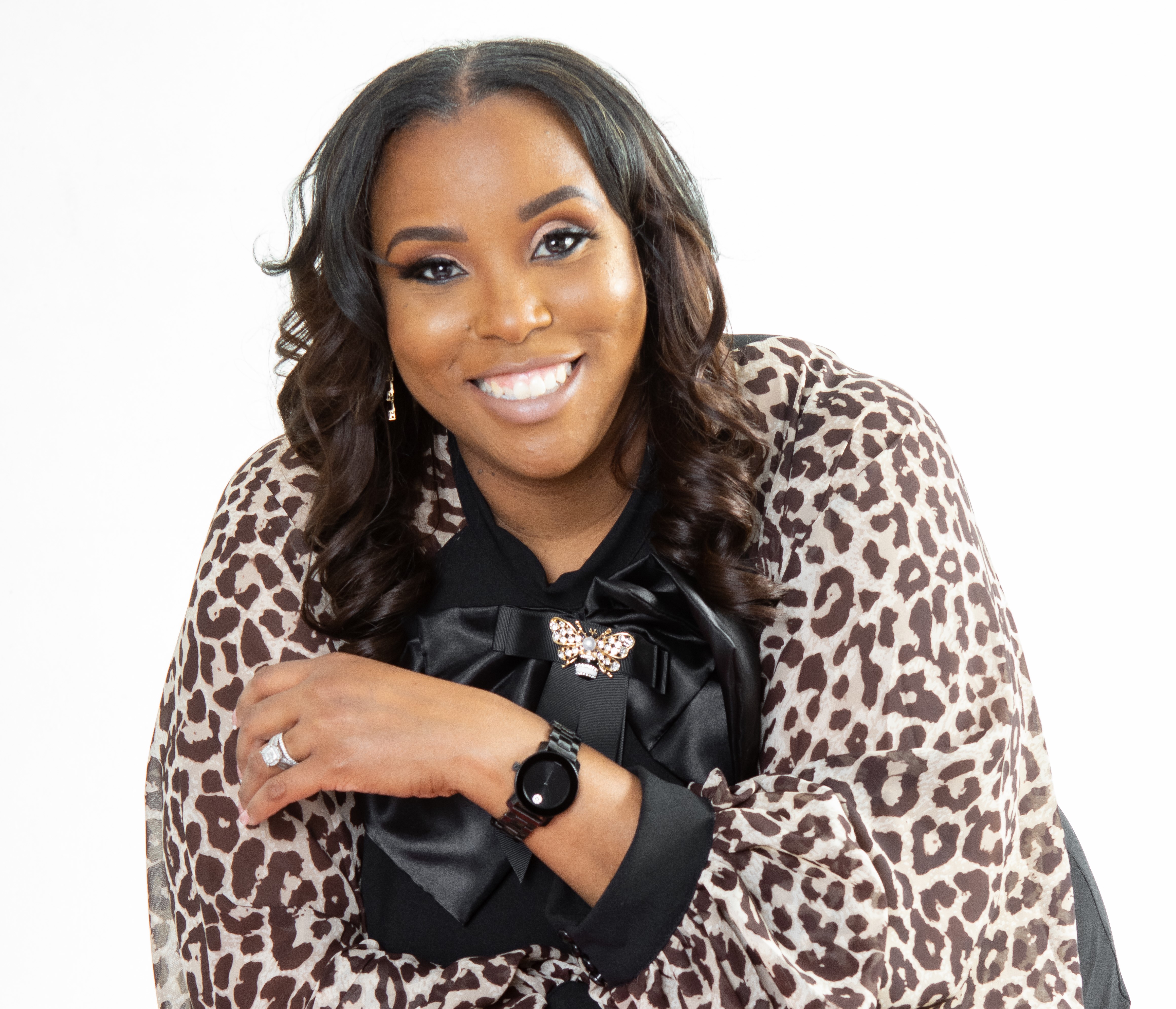 Rochelle Chapman Rochelle Chapman oversees community engagement at Wayne State University's Institute of Environmental Health Sciences (IEHS), Center for Urban Responses to Environmental Stressors (CURES). CURES holds a P30 designation from the National Institute of Environmental Health Sciences (NIEHS). CURES aims to advance the science of community engagement with research. In addition, Rochelle is the Co-Director of the Faith Community Research Network (FCRN), a collaboration between Wayne State University, Karmanos Cancer Institute, and Faith-Based Genetics Research Institute. FCRN aims to educate, empower, and elevate populations primarily composed of people of color, on the benefits of being engaged in medical research. Rochelle is devoted to serving her community as Senior Pastor of New Beginnings Bible Church in Detroit, MI in the same area she was raised in. She received her bachelor’s degree in psychology from Wayne State University and attended Columbia Theological Seminary. Currently, Rochelle is a master’s in public health student at Wayne State University School of Medicine. and currently is a master's in public health student at WSU School of Medicine.
Rochelle Chapman Rochelle Chapman oversees community engagement at Wayne State University's Institute of Environmental Health Sciences (IEHS), Center for Urban Responses to Environmental Stressors (CURES). CURES holds a P30 designation from the National Institute of Environmental Health Sciences (NIEHS). CURES aims to advance the science of community engagement with research. In addition, Rochelle is the Co-Director of the Faith Community Research Network (FCRN), a collaboration between Wayne State University, Karmanos Cancer Institute, and Faith-Based Genetics Research Institute. FCRN aims to educate, empower, and elevate populations primarily composed of people of color, on the benefits of being engaged in medical research. Rochelle is devoted to serving her community as Senior Pastor of New Beginnings Bible Church in Detroit, MI in the same area she was raised in. She received her bachelor’s degree in psychology from Wayne State University and attended Columbia Theological Seminary. Currently, Rochelle is a master’s in public health student at Wayne State University School of Medicine. and currently is a master's in public health student at WSU School of Medicine.
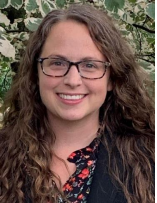 Alyssa Beavers, Ph.D., M.S., Assistant Professor, Nutrition and Food Science, Wayne State University College of Liberal Arts and Sciences is a registered dietitian and community nutrition researcher with experience partnering with non-profit organizations to conduct community-engaged research. She conducts qualitative and quantitative research and evaluation focused on nutrition, food security, and beyond. Dr. Beavers’ current research areas focus on the relationship between gardening and health, and food security and food access. Alyssa researches urban gardening as a health promotion strategy, examining both the health impacts of gardening as well as factors that influence maintenance of gardening. This research uses a community-based participatory research approach, partnering with local gardening organizations throughout the research process. She also examines the relationship between food security and aspects of diet quality, food purchasing and other means of food procurement.
Alyssa Beavers, Ph.D., M.S., Assistant Professor, Nutrition and Food Science, Wayne State University College of Liberal Arts and Sciences is a registered dietitian and community nutrition researcher with experience partnering with non-profit organizations to conduct community-engaged research. She conducts qualitative and quantitative research and evaluation focused on nutrition, food security, and beyond. Dr. Beavers’ current research areas focus on the relationship between gardening and health, and food security and food access. Alyssa researches urban gardening as a health promotion strategy, examining both the health impacts of gardening as well as factors that influence maintenance of gardening. This research uses a community-based participatory research approach, partnering with local gardening organizations throughout the research process. She also examines the relationship between food security and aspects of diet quality, food purchasing and other means of food procurement.
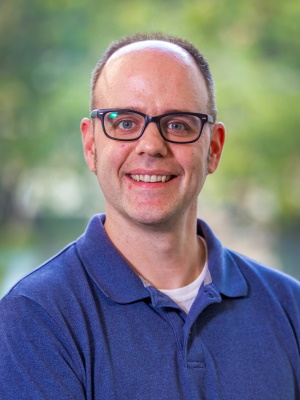 Jason T. Carbone, Ph.D., M.S.W., Assistant Professor, MSW/MPH Joint Degree Program Director, Wayne State University School of Social Work, joined the Wayne State University School of Social Work faculty in 2019. He received his PhD from the School of Social Work within the College for Public Health and Social Justice at Saint Louis University. Carbone has nearly a decade of professional social work experience working in community-based organizations. He is a former not-for-profit executive director with practice experience in community and economic development, community engagement and community building, and organizational management and development. Carbone’s research focuses on the reciprocal relationship between individuals and the communities in which they live. Specific research topics include citizen participation, collective action, neighborhood collective efficacy, neighborhood perceptions, and the associations between community-level factors and an individual’s allostatic load.
Jason T. Carbone, Ph.D., M.S.W., Assistant Professor, MSW/MPH Joint Degree Program Director, Wayne State University School of Social Work, joined the Wayne State University School of Social Work faculty in 2019. He received his PhD from the School of Social Work within the College for Public Health and Social Justice at Saint Louis University. Carbone has nearly a decade of professional social work experience working in community-based organizations. He is a former not-for-profit executive director with practice experience in community and economic development, community engagement and community building, and organizational management and development. Carbone’s research focuses on the reciprocal relationship between individuals and the communities in which they live. Specific research topics include citizen participation, collective action, neighborhood collective efficacy, neighborhood perceptions, and the associations between community-level factors and an individual’s allostatic load.
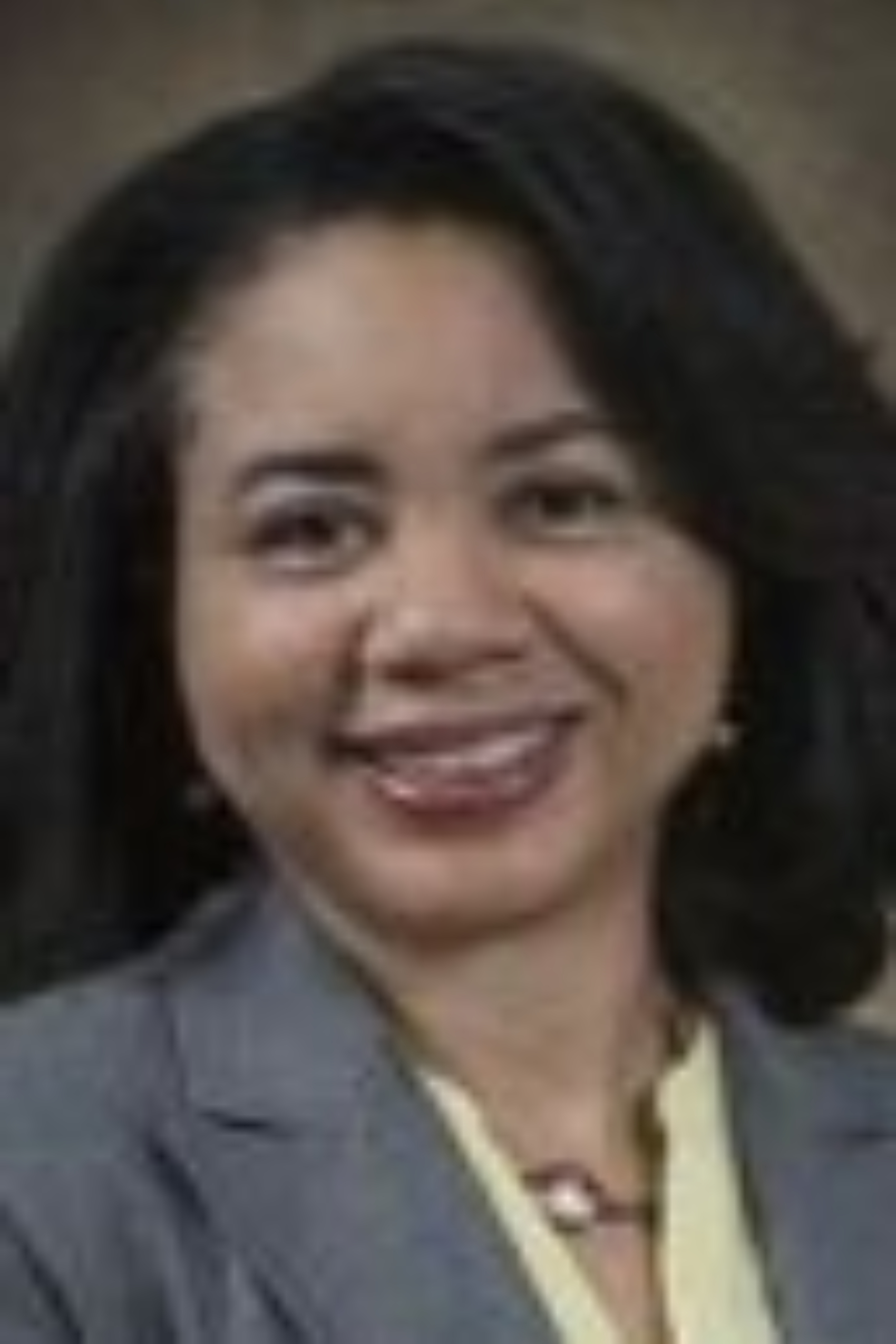 Rhonda Dailey, M.D., is an Assistant Professor of Research in the Department of Family Medicine and Public Health Sciences (DFMPHS) in the School of Medicine and Scientific Director to the Office of Community Engaged Research (OCEnR), within the Office of the Vice President of Research, at Wayne State University. Formally trained in medicine, Dr. Dailey has over 20 years of experience in behavioral and health-disparities research and expertise in the recruitment and retention of minority populations and the engagement of medical professionals and community stakeholders in research. Her research work includes projects focused on community engaged research, perinatal health, health equity and disparities related to chronic disease (particularly asthma and hypertension), patient attitudes and beliefs about health, and healthcare quality. Through the Office of Community Engaged Research and collaborative efforts, she has spearheaded diversity and inclusion efforts to hold dozens of Implicit Bias workshops within the School of Medicine and outside of WSU. Additionally, she has provided many talks on understanding how racism has contributed to medical mistrust and challenges in study recruitment and retention among African Americans. Dr. Dailey is currently supported by several NIH research grants: She is a co-investigator and Co-Associate Director to the Community Engagement Core of the Achieve Greater Center grant, which aims to reduce cardiometabolic health disparities and downstream Black-White lifespan inequalities (PI: Phillip Levy); an Investigator Developing Independent Research Careers supplement recipient to explore participants perceptions and history of health care, asthma, and asthma management in a intervention study to improve asthma controller medication adherence in emerging African American Adults (Detroit Young Adult Asthma Project, PI: Karen MacDonell); a co-investigator and site-Principal Investigator to a study exploring how maternal and paternal psychosocial factors influence birth outcomes for mothers (Biosocial Impact on Black Births Study, PI: Carmen Giurgescu); and a clinical coordinator to a grant aimed to increase COVID-19 and other vaccination access to adults with developmental disabilities, their families, and caregivers (PI: Sharon Milberger).
Rhonda Dailey, M.D., is an Assistant Professor of Research in the Department of Family Medicine and Public Health Sciences (DFMPHS) in the School of Medicine and Scientific Director to the Office of Community Engaged Research (OCEnR), within the Office of the Vice President of Research, at Wayne State University. Formally trained in medicine, Dr. Dailey has over 20 years of experience in behavioral and health-disparities research and expertise in the recruitment and retention of minority populations and the engagement of medical professionals and community stakeholders in research. Her research work includes projects focused on community engaged research, perinatal health, health equity and disparities related to chronic disease (particularly asthma and hypertension), patient attitudes and beliefs about health, and healthcare quality. Through the Office of Community Engaged Research and collaborative efforts, she has spearheaded diversity and inclusion efforts to hold dozens of Implicit Bias workshops within the School of Medicine and outside of WSU. Additionally, she has provided many talks on understanding how racism has contributed to medical mistrust and challenges in study recruitment and retention among African Americans. Dr. Dailey is currently supported by several NIH research grants: She is a co-investigator and Co-Associate Director to the Community Engagement Core of the Achieve Greater Center grant, which aims to reduce cardiometabolic health disparities and downstream Black-White lifespan inequalities (PI: Phillip Levy); an Investigator Developing Independent Research Careers supplement recipient to explore participants perceptions and history of health care, asthma, and asthma management in a intervention study to improve asthma controller medication adherence in emerging African American Adults (Detroit Young Adult Asthma Project, PI: Karen MacDonell); a co-investigator and site-Principal Investigator to a study exploring how maternal and paternal psychosocial factors influence birth outcomes for mothers (Biosocial Impact on Black Births Study, PI: Carmen Giurgescu); and a clinical coordinator to a grant aimed to increase COVID-19 and other vaccination access to adults with developmental disabilities, their families, and caregivers (PI: Sharon Milberger).
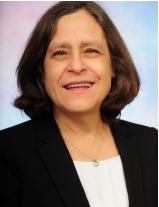 Susan Eggly, Ph.D., is a health communication scientist and Professor in the Population Studies and Disparities Program, Department of Oncology, Wayne State University/Karmanos Cancer Institute. Her research and teaching focus on how patient and clinician attitudes and characteristics affect patient-clinician communication, and in turn, how communication affects patient outcomes in several medical contexts. She has developed and tested several communication interventions to improve patient-clinician communication, with an emphasis on improving health equity and care in diverse patient populations. She has ongoing, NIH-funded research focused on clinical communication and outcomes related to clinical trials, health disparities, and treatment decision-making. She is currently co-leader of the Communication Work Group for the NIH Community Engagement Alliance (CEAL) against COVID.
Susan Eggly, Ph.D., is a health communication scientist and Professor in the Population Studies and Disparities Program, Department of Oncology, Wayne State University/Karmanos Cancer Institute. Her research and teaching focus on how patient and clinician attitudes and characteristics affect patient-clinician communication, and in turn, how communication affects patient outcomes in several medical contexts. She has developed and tested several communication interventions to improve patient-clinician communication, with an emphasis on improving health equity and care in diverse patient populations. She has ongoing, NIH-funded research focused on clinical communication and outcomes related to clinical trials, health disparities, and treatment decision-making. She is currently co-leader of the Communication Work Group for the NIH Community Engagement Alliance (CEAL) against COVID.
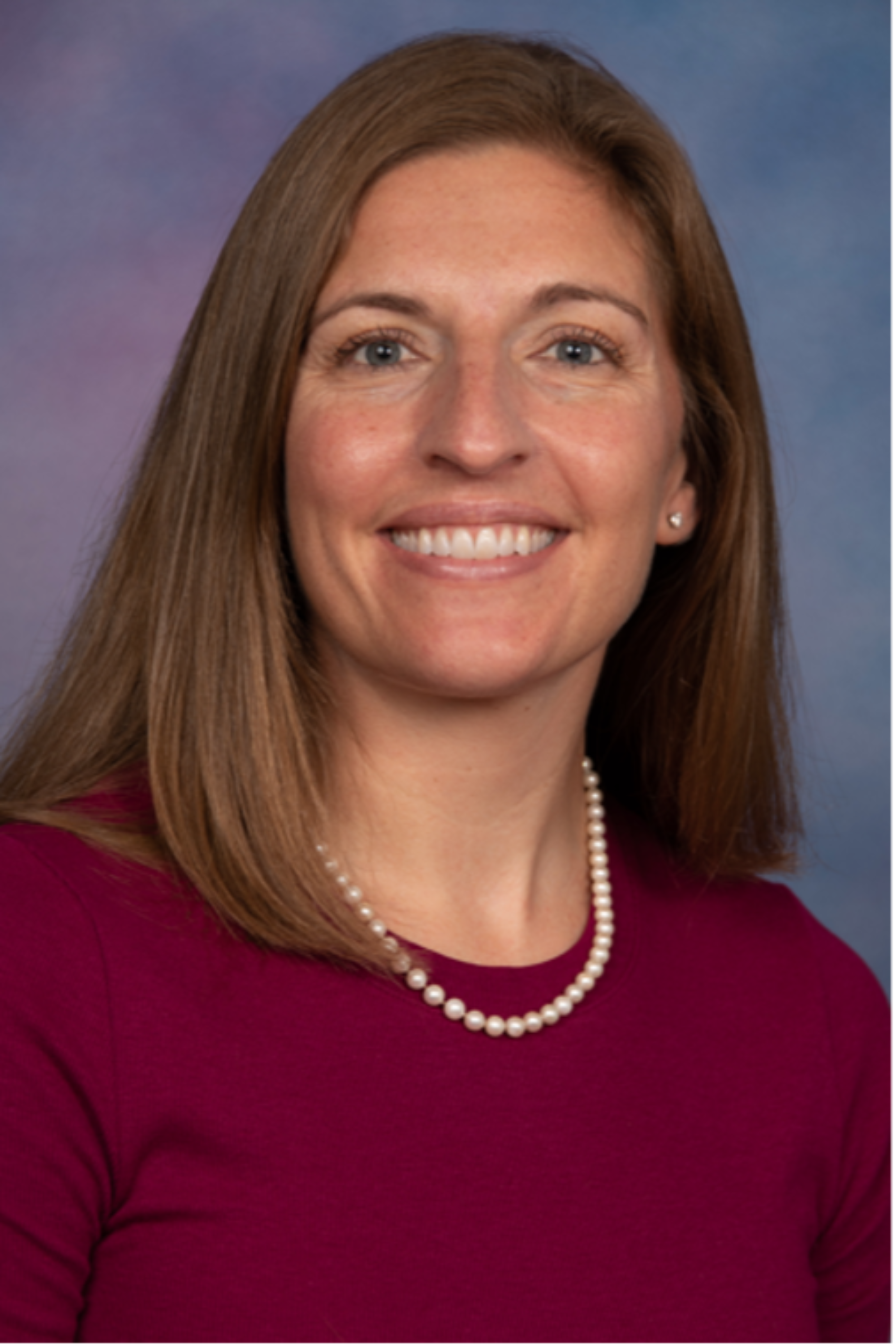 Lauren M. Hamel, Ph.D., is an Associate Professor of Oncology and Co-Program Leader of the Population Studies and Disparities Research Program at the Karmanos Cancer Institute and the Wayne State University School of Medicine in Detroit, Michigan. She is also the faculty director of KCI’s Medical Interaction Research Archive and Vice Chair of Diversity, Equity and Inclusion for the Department of Oncology. Dr. Hamel is an expert in patient-physician communication, cancer treatment disparities, and in building and testing interventions to improve patient-physician communication. She is PI of two recently completed NIH-funded studies assessing nonverbal communication that occurs between black patients with cancer and their oncologists during clinical interactions. Using video-recorded naturally-occuring cancer treatment discussions, she is investigating aspects of nonverbal communication as potential markers of racial attitudes (e.g., physician implicit bias, patient suspicion of medical care) and predictors of interaction outcomes. Currently, Dr. Hamel is PI of an American Cancer Society Research Scholar Health Equity Grant test the effectiveness of a patient-focused intervention on patient-clinician treatment cost discussions and other patient financial toxicity-related outcomes. She has 50+ publications including articles in peer-reviewed scientific journals including Cancer, the Journal of Clinical Oncology, JCO Oncology Practice, and Cancer Control.
Lauren M. Hamel, Ph.D., is an Associate Professor of Oncology and Co-Program Leader of the Population Studies and Disparities Research Program at the Karmanos Cancer Institute and the Wayne State University School of Medicine in Detroit, Michigan. She is also the faculty director of KCI’s Medical Interaction Research Archive and Vice Chair of Diversity, Equity and Inclusion for the Department of Oncology. Dr. Hamel is an expert in patient-physician communication, cancer treatment disparities, and in building and testing interventions to improve patient-physician communication. She is PI of two recently completed NIH-funded studies assessing nonverbal communication that occurs between black patients with cancer and their oncologists during clinical interactions. Using video-recorded naturally-occuring cancer treatment discussions, she is investigating aspects of nonverbal communication as potential markers of racial attitudes (e.g., physician implicit bias, patient suspicion of medical care) and predictors of interaction outcomes. Currently, Dr. Hamel is PI of an American Cancer Society Research Scholar Health Equity Grant test the effectiveness of a patient-focused intervention on patient-clinician treatment cost discussions and other patient financial toxicity-related outcomes. She has 50+ publications including articles in peer-reviewed scientific journals including Cancer, the Journal of Clinical Oncology, JCO Oncology Practice, and Cancer Control.
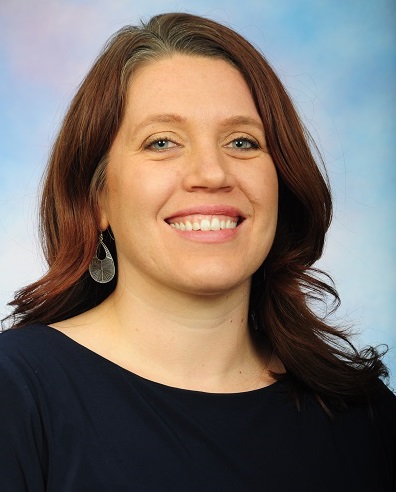 Theresa Hastert, Ph.D., M.P.P., is an Associate Professor in the Department of Oncology at the Wayne State University School of Medicine and the Population Studies and Disparities Research Program of the Karmanos Cancer Institute. Her research focuses on social, economic, and behavioral factors as predictors of cancer outcomes and in racial and socioeconomic health disparities. Her recent work focuses on cancer survivorship, financial and employment outcomes after cancer, and their impact on health-related quality of life for people with cancer and their caregivers using quantitative and qualitative methods.
Theresa Hastert, Ph.D., M.P.P., is an Associate Professor in the Department of Oncology at the Wayne State University School of Medicine and the Population Studies and Disparities Research Program of the Karmanos Cancer Institute. Her research focuses on social, economic, and behavioral factors as predictors of cancer outcomes and in racial and socioeconomic health disparities. Her recent work focuses on cancer survivorship, financial and employment outcomes after cancer, and their impact on health-related quality of life for people with cancer and their caregivers using quantitative and qualitative methods.
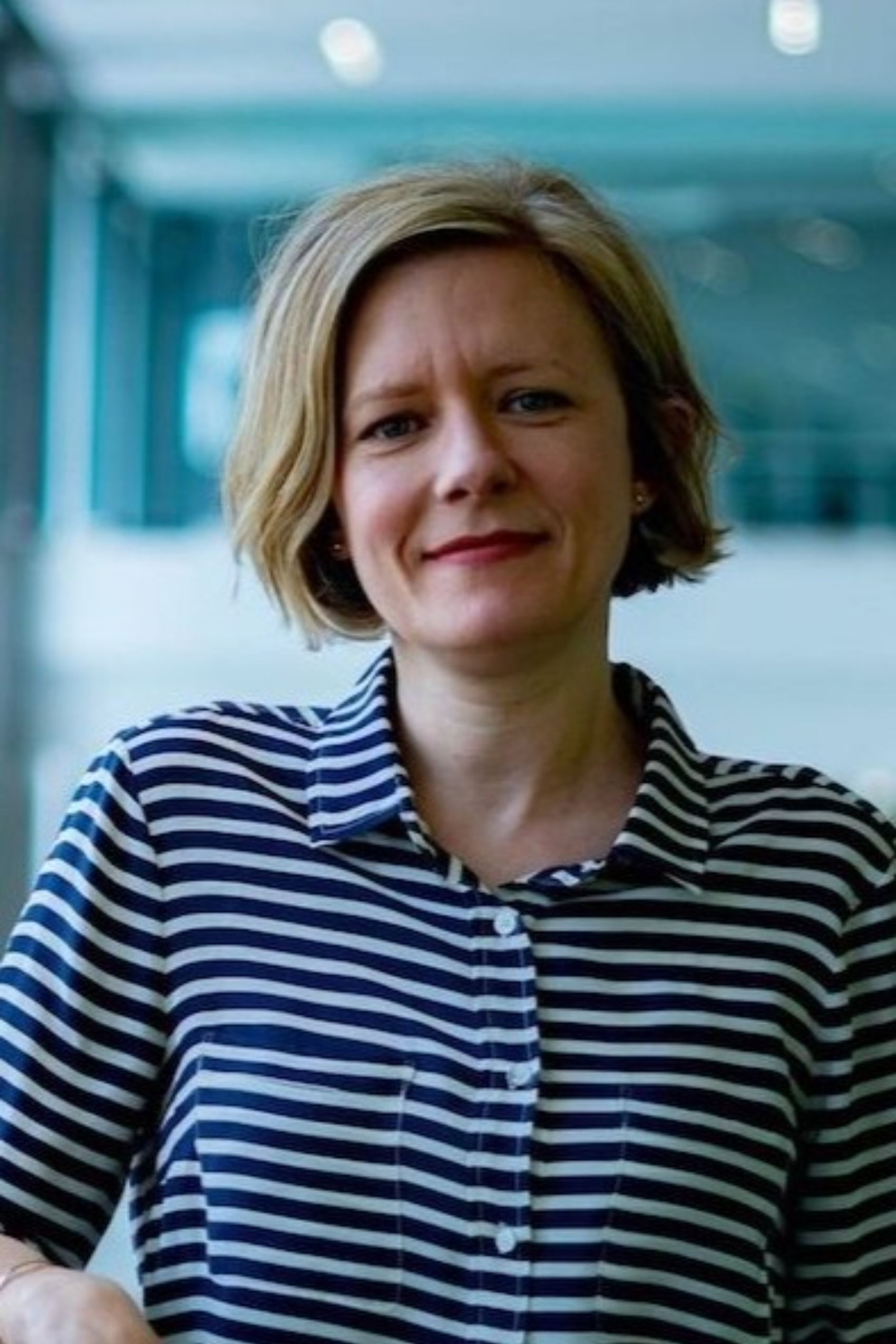 Carrie Leach, Ph.D., M.P.A., Associate Director for Community Inclusion, WSU Center for Health Equity and Community Knowledge in Urban Populations, is an Assistant Professor of Research at the Institute of Gerontology, Community Engagement Program Manager at the Center for Urban Responses to Environmental Stressors (CURES), and Associate Director for Community Inclusion at the Center for Health Equity and Community Knowledge in Urban Populations (CHECK-UP) at WSU. Dr. Leach has expertise in health communication, participatory and action research, digital and health literacy, and community-based and aging services delivery and communication. Her research, expertise, and driving passion are focused on improving communication inequities, decision making and public health by developing community-driven solutions derived from participatory processes. Her work at the IOG has focused on partnering with organizational leaders and community residents to evaluate and examine the needs of more than 5,500 older adults across Michigan to translate findings into actionable improvements in aging and community-based services practice and policy. At CURES she works with community stakeholders and researchers to co-construct multi-media materials aimed at improving environmental health literacy in Detroit. Those efforts resulted in disseminating health-protecting information to more than 5,000 Detroiters through face-to-face interactions and thousands more on-line. Her overarching aim is to foster University in-reach, so that the science community and expertise can be leveraged to the benefit of the public, and likewise, so researchers can learn through community engaged experiences and be better allies through their work.
Carrie Leach, Ph.D., M.P.A., Associate Director for Community Inclusion, WSU Center for Health Equity and Community Knowledge in Urban Populations, is an Assistant Professor of Research at the Institute of Gerontology, Community Engagement Program Manager at the Center for Urban Responses to Environmental Stressors (CURES), and Associate Director for Community Inclusion at the Center for Health Equity and Community Knowledge in Urban Populations (CHECK-UP) at WSU. Dr. Leach has expertise in health communication, participatory and action research, digital and health literacy, and community-based and aging services delivery and communication. Her research, expertise, and driving passion are focused on improving communication inequities, decision making and public health by developing community-driven solutions derived from participatory processes. Her work at the IOG has focused on partnering with organizational leaders and community residents to evaluate and examine the needs of more than 5,500 older adults across Michigan to translate findings into actionable improvements in aging and community-based services practice and policy. At CURES she works with community stakeholders and researchers to co-construct multi-media materials aimed at improving environmental health literacy in Detroit. Those efforts resulted in disseminating health-protecting information to more than 5,000 Detroiters through face-to-face interactions and thousands more on-line. Her overarching aim is to foster University in-reach, so that the science community and expertise can be leveraged to the benefit of the public, and likewise, so researchers can learn through community engaged experiences and be better allies through their work.
Ariel Washington, Ph.D., is a communty outreach and engagement scientist at the Department of Oncology at the Wayne State University School of Medicine
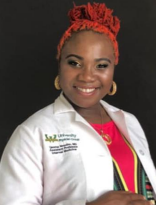 Ijeoma Nnodim Opara, M.D. Assistant Professor of Internal Medicine and Pediatrics, Associate Internal Medicine-Pediatrics Residency Program Director, Wayne State University School of Medicine, received her medical degree from Wayne State University School of Medicine (WSUSOM) and is a graduate of Detroit Medical Center (DMC)/WSUSOM Internal Medicine-Pediatrics combined residency program, after which she served as Chief Medical Resident. Currently, she is a double-board certified Assistant Professor of Internal Medicine and Pediatrics at WSUSOM, Associate Program Director of the Internal Medicine-Pediatrics residency, and attending physician with Wayne State University Physician Group. She is the founding director of an innovative initiative and curriculum “Health Equity and Justice in Medicine” for internal medicine, internal medicine-pediatrics, and pediatrics residents which combines critical reflection, community engagement, scholarship, and advocacy to address social and structural determinants of health and health disparities. She is Chair of the SEMCME committee on social determinants of health education and the Detroit Medical Center Graduate Medical Education Center for Quality Improvement, social determinant of health section.She is also co-founding director of Wayne State University Global Health Alliance, a multidisciplinary organization created to unify university and regional global health practitioners and create a collaborative community of best practice in global and urban health. She co-created and co-directs the Global Urban Health & Equity curriculum (GLUE), an innovative interprofessional comprehensive certificate and competency-based global health curriculum. She provides clinical care to a chiefly underserved population, supervises resident clinics, and teaches inpatient and ambulatory medicine. Certified in Clinical Teaching by the Stanford Clinical Teaching Program and an inaugural fellow of the Academic Leadership Academy of Wayne State University, she is passionate about medical education, mentoring a number of residents and medical students in wellness, work-life integration, academic, and career development. Her areas of academic interests are in health equity, justice, social and structural determinants of health, global health, and interprofessional education.
Ijeoma Nnodim Opara, M.D. Assistant Professor of Internal Medicine and Pediatrics, Associate Internal Medicine-Pediatrics Residency Program Director, Wayne State University School of Medicine, received her medical degree from Wayne State University School of Medicine (WSUSOM) and is a graduate of Detroit Medical Center (DMC)/WSUSOM Internal Medicine-Pediatrics combined residency program, after which she served as Chief Medical Resident. Currently, she is a double-board certified Assistant Professor of Internal Medicine and Pediatrics at WSUSOM, Associate Program Director of the Internal Medicine-Pediatrics residency, and attending physician with Wayne State University Physician Group. She is the founding director of an innovative initiative and curriculum “Health Equity and Justice in Medicine” for internal medicine, internal medicine-pediatrics, and pediatrics residents which combines critical reflection, community engagement, scholarship, and advocacy to address social and structural determinants of health and health disparities. She is Chair of the SEMCME committee on social determinants of health education and the Detroit Medical Center Graduate Medical Education Center for Quality Improvement, social determinant of health section.She is also co-founding director of Wayne State University Global Health Alliance, a multidisciplinary organization created to unify university and regional global health practitioners and create a collaborative community of best practice in global and urban health. She co-created and co-directs the Global Urban Health & Equity curriculum (GLUE), an innovative interprofessional comprehensive certificate and competency-based global health curriculum. She provides clinical care to a chiefly underserved population, supervises resident clinics, and teaches inpatient and ambulatory medicine. Certified in Clinical Teaching by the Stanford Clinical Teaching Program and an inaugural fellow of the Academic Leadership Academy of Wayne State University, she is passionate about medical education, mentoring a number of residents and medical students in wellness, work-life integration, academic, and career development. Her areas of academic interests are in health equity, justice, social and structural determinants of health, global health, and interprofessional education.
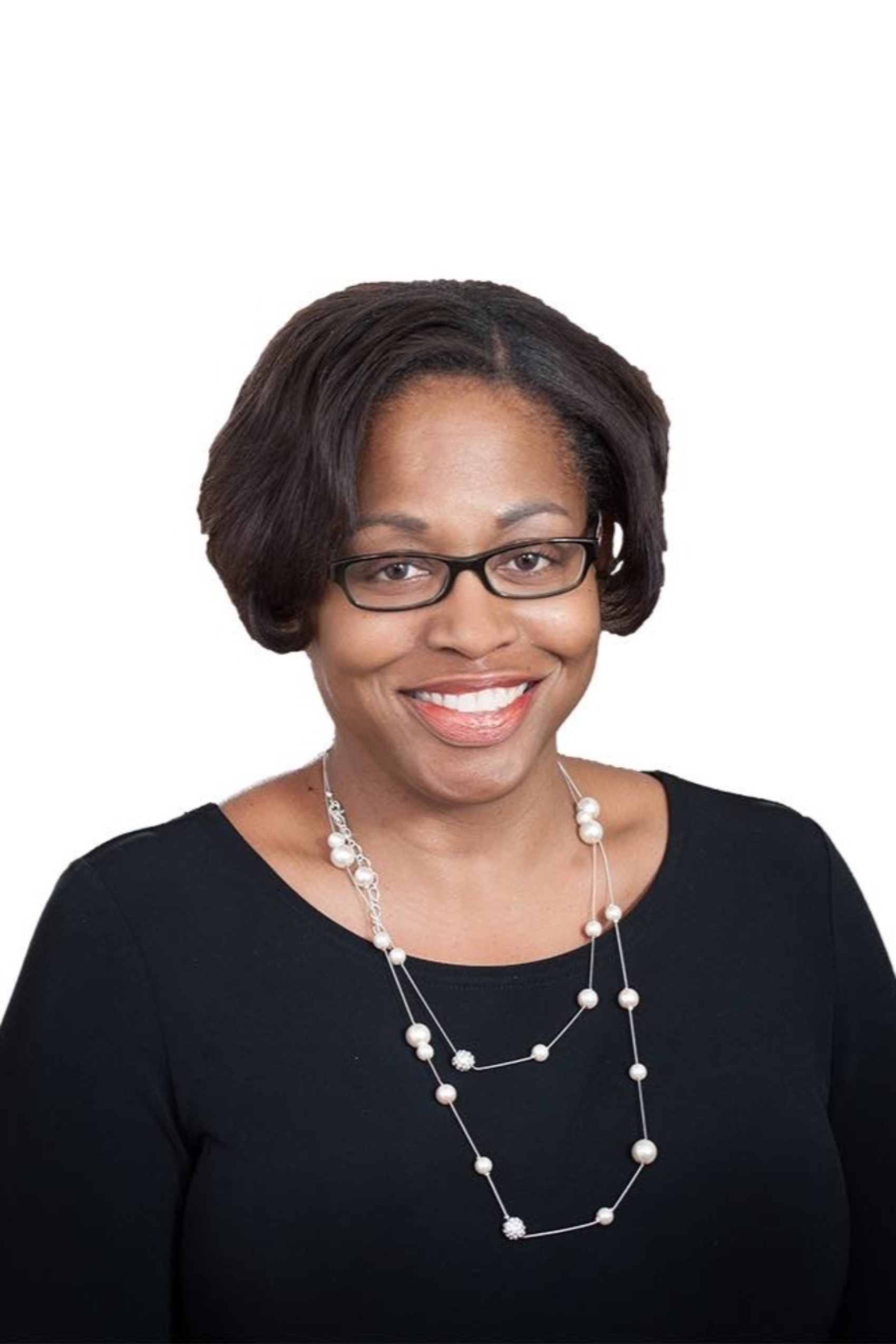 Angulique Y. Outlaw, Ph.D. Associate Dean of Post-Doctoral Affairs, Wayne State University Graduate School Vice Chair for Diversity, Equity, and Inclusion (DEI), Department of Family Medicine and Public Health Sciences, Wayne State University School of Medicine, is the Associate Dean for Postdoctoral Affairs in the Graduate School at Wayne State University. She is also an Associate Professor of Research and a Vice Chair for Diversity, Equity, and Inclusion (DEI) for the Department of Family Medicine and Public Health Sciences at the Wayne State University School of Medicine. Dr. Outlaw is the Director of Prevention Programming for Wayne State University Prevention (W’SUP), a grant-funded, comprehensive HIV prevention program for at-risk adolescents and young adults ages 13 – 29. Dr. Outlaw has worked in the field of HIV for over 20 years. She has provided clinical services for children, adolescents, and young adults living with HIV, and has expertise in the areas of academic/service research, intervention development, and program evaluation. She is a pediatric psychologist with significant expertise in designing, implementing, and evaluating interventions for high-risk youth utilizing community-based participatory research (CBPR) practices. Dr. Outlaw has extensive CBPR expertise and experience with at-risk and youth living with HIV, and has experience with multi-site evaluation studies via NIH-funded clinical trials, the Center for Disease Control and Prevention (CDC), HRSA Special Projects of National Significance (SPNS), and the Office of Minority Health (OMH). Additionally, Dr. Outlaw has several locally funded projects focusing on HIV testing, PrEP education, referral and linkage to HIV care, skills building primary HIV prevention programming, and tobacco reduction/cessation for youth and young adults living with HIV. She is currently the co-lead for the Equity, Inclusion, and Engagement (EIE) Leadership Team for the NIH-funded Adolescent Medicine Trials Network for HIV Interventions (ATN).
Angulique Y. Outlaw, Ph.D. Associate Dean of Post-Doctoral Affairs, Wayne State University Graduate School Vice Chair for Diversity, Equity, and Inclusion (DEI), Department of Family Medicine and Public Health Sciences, Wayne State University School of Medicine, is the Associate Dean for Postdoctoral Affairs in the Graduate School at Wayne State University. She is also an Associate Professor of Research and a Vice Chair for Diversity, Equity, and Inclusion (DEI) for the Department of Family Medicine and Public Health Sciences at the Wayne State University School of Medicine. Dr. Outlaw is the Director of Prevention Programming for Wayne State University Prevention (W’SUP), a grant-funded, comprehensive HIV prevention program for at-risk adolescents and young adults ages 13 – 29. Dr. Outlaw has worked in the field of HIV for over 20 years. She has provided clinical services for children, adolescents, and young adults living with HIV, and has expertise in the areas of academic/service research, intervention development, and program evaluation. She is a pediatric psychologist with significant expertise in designing, implementing, and evaluating interventions for high-risk youth utilizing community-based participatory research (CBPR) practices. Dr. Outlaw has extensive CBPR expertise and experience with at-risk and youth living with HIV, and has experience with multi-site evaluation studies via NIH-funded clinical trials, the Center for Disease Control and Prevention (CDC), HRSA Special Projects of National Significance (SPNS), and the Office of Minority Health (OMH). Additionally, Dr. Outlaw has several locally funded projects focusing on HIV testing, PrEP education, referral and linkage to HIV care, skills building primary HIV prevention programming, and tobacco reduction/cessation for youth and young adults living with HIV. She is currently the co-lead for the Equity, Inclusion, and Engagement (EIE) Leadership Team for the NIH-funded Adolescent Medicine Trials Network for HIV Interventions (ATN).
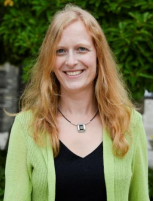 Jessica Robbins Ph.D., M.A. Ph.D., is an Associate Professor at the Institute of Gerontology and Department of Anthropology at Wayne State University. As a medical and sociocultural anthropologist, she studies how individuals' experiences of aging-especially of health and illness--are part of broader social, cultural, political, economic, and historical processes. Dr. Robbins-Panko received her PhD in Anthropology from the University of Michigan in 2013. Her research has been funded by a grant from the National Institutes of Health, P30 AG015281, and the Michigan Center for Urban African American Aging Research, the National Science Foundation, the Wenner-Gren Foundation, the Woodrow Wilson International Center for Scholars (through a grant from the US Department of State Title VIII), the International Research Exchange Board (through a grant from the US Department of State Title VIII), Elderhostel/Road Scholar, and several units at the University of Michigan and Wayne State University.
Jessica Robbins Ph.D., M.A. Ph.D., is an Associate Professor at the Institute of Gerontology and Department of Anthropology at Wayne State University. As a medical and sociocultural anthropologist, she studies how individuals' experiences of aging-especially of health and illness--are part of broader social, cultural, political, economic, and historical processes. Dr. Robbins-Panko received her PhD in Anthropology from the University of Michigan in 2013. Her research has been funded by a grant from the National Institutes of Health, P30 AG015281, and the Michigan Center for Urban African American Aging Research, the National Science Foundation, the Wenner-Gren Foundation, the Woodrow Wilson International Center for Scholars (through a grant from the US Department of State Title VIII), the International Research Exchange Board (through a grant from the US Department of State Title VIII), Elderhostel/Road Scholar, and several units at the University of Michigan and Wayne State University.
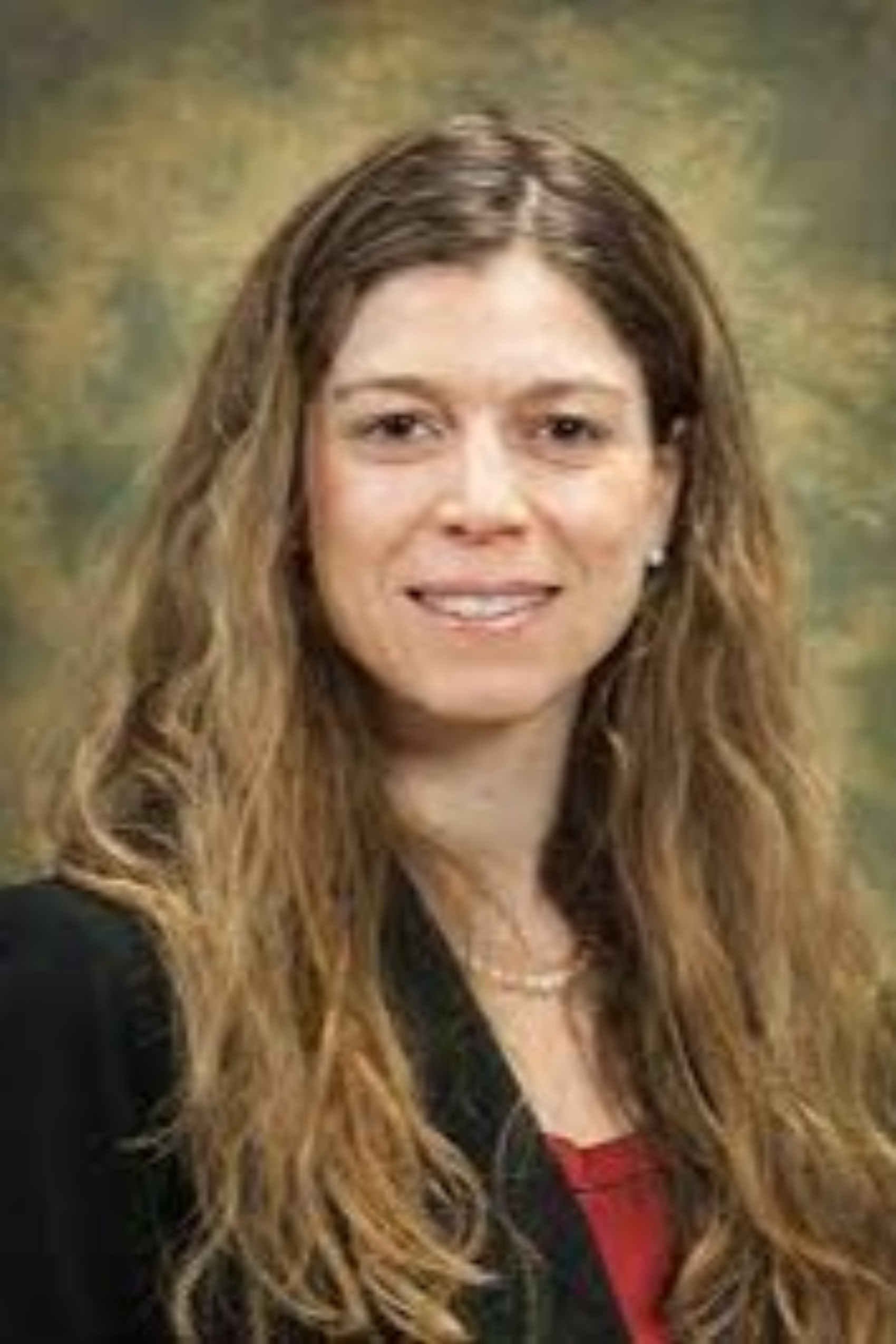 Elizabeth Towner, Ph.D., is an Assistant Professor in the Department of Family Medicine & Public Health Sciences within the Division of Behavioral Sciences at Wayne State University School of Medicine. She is also a member of the Steering Committee for the Center for Health Equity and Community Knowledge in Urban Populations, Co-Associate Director for the NIH-funded ACHIEVE GreatER Center Community Engagement Core, Research Director for the MetroNet Practice-Based Research Network, and a faculty member within the Office of Community Engaged Research at Wayne State University. Her research broadly focuses on health equity, developing health behavioral interventions, and pediatric obesity. She has over a decade of experience applying community engaged and community-based participatory research in these areas. Dr. Towner has partnered with several community organizations, community members, and primary care clinics to build infrastructure and capacity for community engaged and patientcentered outcomes research in the areas of pediatric obesity, cardiovascular health equity, COVID-19, and Long COVID in Detroit. This work has included facilitating community action councils, adapting and implementing a research capacity building curriculum for community members, engaging action councils in identifying and ranking research priorities, developing community-focused research agendas, and engaging action councils in developing, implementing, and evaluating health campaigns that focus on their health priorities. She has obtained several extramural grants and contracts to support this work. Finally, Dr. Towner teaches a course in the Master’s of Public Health program at Wayne State University on Public Health Community Level Intervention Science.
Elizabeth Towner, Ph.D., is an Assistant Professor in the Department of Family Medicine & Public Health Sciences within the Division of Behavioral Sciences at Wayne State University School of Medicine. She is also a member of the Steering Committee for the Center for Health Equity and Community Knowledge in Urban Populations, Co-Associate Director for the NIH-funded ACHIEVE GreatER Center Community Engagement Core, Research Director for the MetroNet Practice-Based Research Network, and a faculty member within the Office of Community Engaged Research at Wayne State University. Her research broadly focuses on health equity, developing health behavioral interventions, and pediatric obesity. She has over a decade of experience applying community engaged and community-based participatory research in these areas. Dr. Towner has partnered with several community organizations, community members, and primary care clinics to build infrastructure and capacity for community engaged and patientcentered outcomes research in the areas of pediatric obesity, cardiovascular health equity, COVID-19, and Long COVID in Detroit. This work has included facilitating community action councils, adapting and implementing a research capacity building curriculum for community members, engaging action councils in identifying and ranking research priorities, developing community-focused research agendas, and engaging action councils in developing, implementing, and evaluating health campaigns that focus on their health priorities. She has obtained several extramural grants and contracts to support this work. Finally, Dr. Towner teaches a course in the Master’s of Public Health program at Wayne State University on Public Health Community Level Intervention Science.
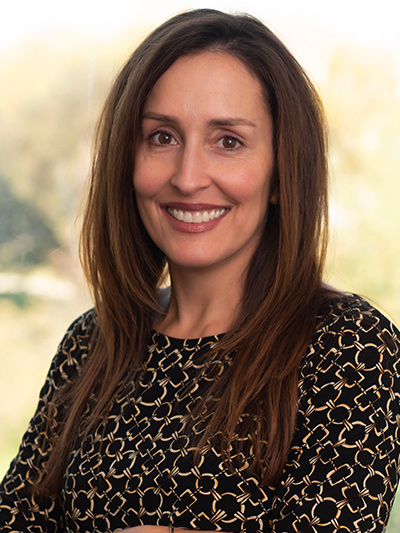 Cheryl Leigh Somers, Ph.D., is a Professor in the Community Health area of the Division of Kinesiology, Health, & Sports Studies, College of Education at Wayne State University. She is also a faculty affiliate in the Center for Health and Community Impact (CHCI) and the Associate Director of the WSU CHW Academy. Her academic and clinical expertise is in school psychology and counseling psychology and she has trained school and counseling psychologists her whole career, advising extensively at both the master’s and doctoral levels. Her research and community outreach work is conducted within the Center for Health and Community Impact (CHCI), also at Wayne State. Her research has long been collaborative and interdisciplinary, focused on contextual (e.g., family, peer, school, media, other) predictors of social and emotional development, academic achievement, and physical and sexual health, including interventions for reducing or avoiding unhealthy risk behaviors and improving health and wellness outcomes, with an emphasis on vulnerable youth, including those of low income and economic marginalization (LIEM) backgrounds. Health and wellness equity is of central focus, as is understanding social and structural determinants of health and wellness inequities. Dr. Somers has a strong emphasis on collaborative and interdisciplinary research with others, through which varying lenses and vantage points contribute to rich perspectives on human developmental research. Her studies primarily involve basic inferential research as well as evaluation of interventions, with some qualitative methodologies employed as well. Two research directions in the past 10 years have included a) the impact on trauma and trauma interventions for youth, including an emphasis on the role of trauma in school functioning among court-involved female youth and evaluation of the impact of trauma-informed teaching intervention on academic success, and b) the role of physical activity and related health factors in youths' academic achievement and evaluation of the impact of physical activity intervention on academic achievement. Her newest research direction involves training of Community Health Workers (CHWs) as a mechanism for service delivery in the physical, medical, social, and mental health and wellness domains, and examining efficacy of training and practice of CHWs in partnership with a large interdisciplinary team of research scholars and community agencies. This work is focused on understanding and targeting the complex social determinants of health in underserved and marginalized communities. Learn more about Dr. Somers and the Community Health Worker Academy.
Cheryl Leigh Somers, Ph.D., is a Professor in the Community Health area of the Division of Kinesiology, Health, & Sports Studies, College of Education at Wayne State University. She is also a faculty affiliate in the Center for Health and Community Impact (CHCI) and the Associate Director of the WSU CHW Academy. Her academic and clinical expertise is in school psychology and counseling psychology and she has trained school and counseling psychologists her whole career, advising extensively at both the master’s and doctoral levels. Her research and community outreach work is conducted within the Center for Health and Community Impact (CHCI), also at Wayne State. Her research has long been collaborative and interdisciplinary, focused on contextual (e.g., family, peer, school, media, other) predictors of social and emotional development, academic achievement, and physical and sexual health, including interventions for reducing or avoiding unhealthy risk behaviors and improving health and wellness outcomes, with an emphasis on vulnerable youth, including those of low income and economic marginalization (LIEM) backgrounds. Health and wellness equity is of central focus, as is understanding social and structural determinants of health and wellness inequities. Dr. Somers has a strong emphasis on collaborative and interdisciplinary research with others, through which varying lenses and vantage points contribute to rich perspectives on human developmental research. Her studies primarily involve basic inferential research as well as evaluation of interventions, with some qualitative methodologies employed as well. Two research directions in the past 10 years have included a) the impact on trauma and trauma interventions for youth, including an emphasis on the role of trauma in school functioning among court-involved female youth and evaluation of the impact of trauma-informed teaching intervention on academic success, and b) the role of physical activity and related health factors in youths' academic achievement and evaluation of the impact of physical activity intervention on academic achievement. Her newest research direction involves training of Community Health Workers (CHWs) as a mechanism for service delivery in the physical, medical, social, and mental health and wellness domains, and examining efficacy of training and practice of CHWs in partnership with a large interdisciplinary team of research scholars and community agencies. This work is focused on understanding and targeting the complex social determinants of health in underserved and marginalized communities. Learn more about Dr. Somers and the Community Health Worker Academy.
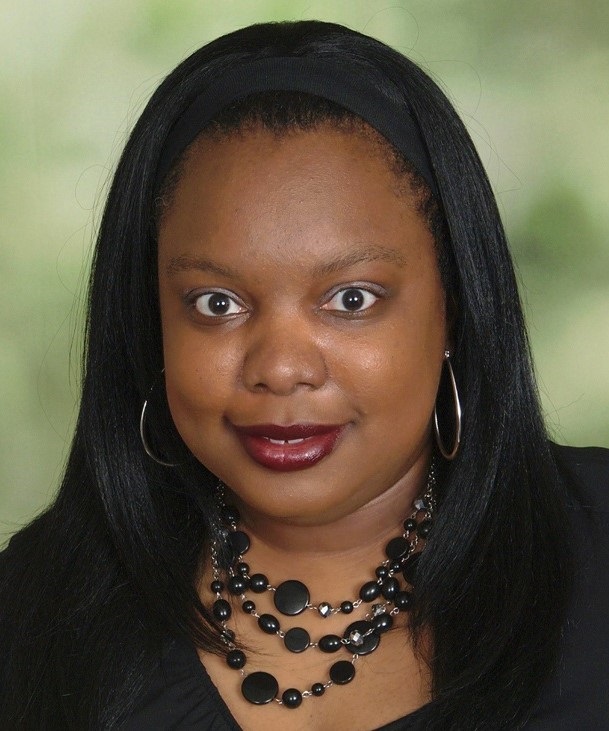 Rodlescia Sneed, Ph.D., M.P.H., is an Assistant Professor at Wayne State University jointly appointed in the Institute of Gerontology and the Department of Psychology. She is a social gerontologist interested in how the social environment impacts adult developing and aging in diverse populations. She is a Detroit native and has expertise in biopsychosocial models of health, community-engaged research, and chronic disease. Her work engages community and institutional stakeholders to identify and improve upon factors that contribute to inequities in health and well-being among mid and late-life adults.
Rodlescia Sneed, Ph.D., M.P.H., is an Assistant Professor at Wayne State University jointly appointed in the Institute of Gerontology and the Department of Psychology. She is a social gerontologist interested in how the social environment impacts adult developing and aging in diverse populations. She is a Detroit native and has expertise in biopsychosocial models of health, community-engaged research, and chronic disease. Her work engages community and institutional stakeholders to identify and improve upon factors that contribute to inequities in health and well-being among mid and late-life adults.
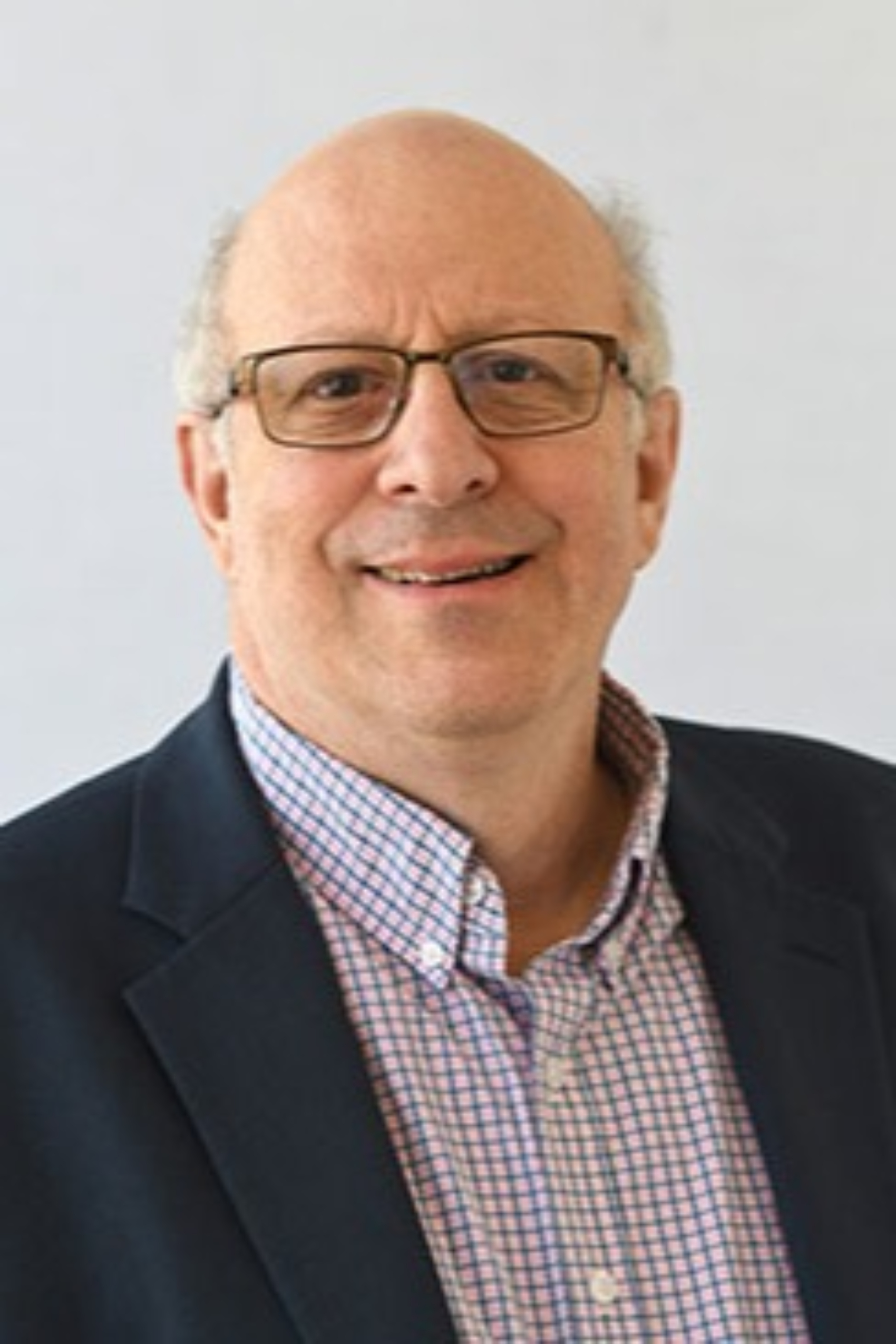 Rick Zimmerman, Ph.D., currently a Professor and the Associate Dean for Research in the Wayne State University College of Nursing in Detroit. He is a prevention scientist who received his PhD in medical sociology from the University of Wisconsin-Madison. His research has focused on models of behavior change; HIV, STD, and teen pregnancy prevention; and understanding and improving the validity of self-reports of sensitive behaviors. His current funded research is an NIH project developing and evaluating a micro-economic intervention to reduce HIV and violence in transgender women and a SAMHSA project to evaluate the impact of programs to prevent and treat substance use disorder and HIV.
Rick Zimmerman, Ph.D., currently a Professor and the Associate Dean for Research in the Wayne State University College of Nursing in Detroit. He is a prevention scientist who received his PhD in medical sociology from the University of Wisconsin-Madison. His research has focused on models of behavior change; HIV, STD, and teen pregnancy prevention; and understanding and improving the validity of self-reports of sensitive behaviors. His current funded research is an NIH project developing and evaluating a micro-economic intervention to reduce HIV and violence in transgender women and a SAMHSA project to evaluate the impact of programs to prevent and treat substance use disorder and HIV.
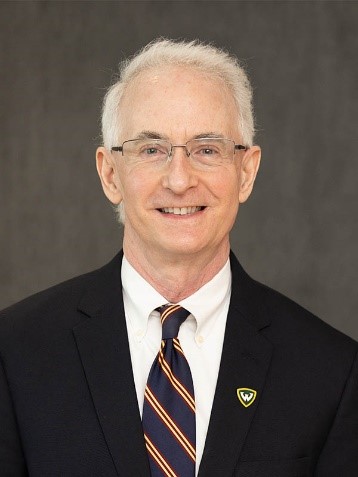
Paul E. Kilgore, MPH, MD, is a Professor and Director of Research in the Department of Pharmacy Practice of the Eugene Applebaum College of Pharmacy and Health Sciences, Wayne State University, in Detroit, Michigan. Dr. Kilgore completed his undergraduate and graduate studies (MPH, epidemiology) at the University of Michigan in Ann Arbor, and received his MD from Wayne State University School of Medicine. Following a residency in internal medicine at the University of Michigan Hospitals in Ann Arbor, he entered the Epidemic Intelligence Service program at the U.S. Centers for Disease Control and Prevention (CDC) in Atlanta, Georgia. In 1996, he joined the U.S. Public Health Service working in the Child Vaccine-Preventable Diseases Branch. From 1999—2011, Dr. Kilgore served as Scientist at the International Vaccine Institute in Seoul, South Korea, where he designed and implemented projects in 19 countries in Asia and Africa. Dr. Kilgore has served on a number of vaccine and advisory boards as well as scientific review committees for the US NIH, CDC and agencies around the world. In 2011, he was appointed Associate Professor in the Department of Pharmacy Practice at the Eugene Applebaum College of Pharmacy and Health Sciences.
Dr. Kilgore conducts research in infectious diseases, diagnostic test development, and control of vaccine-preventable diseases with the goal of supporting development of health programs and policies that improve individual patient outcomes and safety as well as reduce health disparities. Dr. Kilgore has worked in over 25 resource-limited countries of Africa, Asia, Oceania and South America including work focused on the development of rapid diagnostic tests for bacterial infections. Dr. Kilgore’s work has been funded by international agencies, foundations and a variety of public sources and research agencies around the world. Dr. Kilgore has authored more than 100 peer-reviewed papers and book chapters.
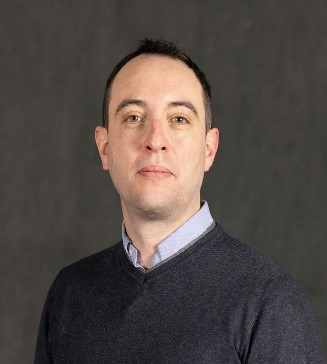 Samuele Zilioli, PhD, is a associate professor in the Department of Psychology and the Department of Family Medicine and Public Health Sciences at Wayne State University (WSU), Detroit. Before landing in the US, Dr. Zilioli completed his undergraduate and graduate training in Italy and Canada. In Italy, he received a B.A. and M.A. in Psychology from Catholic University of Sacred Heart. In Canada, he completed a Ph.D. in Cognitive and Neural Sciences from Simon Fraser University where he was the recipient of the Governor General's Gold Medal for achieving the highest academic standing upon graduation. He completed a postdoc in health psychology at Wayne State University.
Samuele Zilioli, PhD, is a associate professor in the Department of Psychology and the Department of Family Medicine and Public Health Sciences at Wayne State University (WSU), Detroit. Before landing in the US, Dr. Zilioli completed his undergraduate and graduate training in Italy and Canada. In Italy, he received a B.A. and M.A. in Psychology from Catholic University of Sacred Heart. In Canada, he completed a Ph.D. in Cognitive and Neural Sciences from Simon Fraser University where he was the recipient of the Governor General's Gold Medal for achieving the highest academic standing upon graduation. He completed a postdoc in health psychology at Wayne State University.
Dr. Zilioli’s program of research focuses on the relationships between psychosocial stressors related to socioeconomic status (SES) and race/ethnicity, psychosocial resources, and glucocorticoid-related mechanisms, and the extent to which these biopsychological mechanisms serve as pathways through which stress affects other biological systems (e.g., immune, cardiovascular, and metabolic system) and physical health across the lifespan. His research has been funded by the National Institute of Justice (NIJ) and is currently funded by the National Institute of Health (NIH). Dr. Zilioli’s work has appeared in Psychological Science, Clinical Psychological Science, Psychoneuroendocrinology, Brain Behavior and Immunity, The Journals of Gerontology Series A, Neuroscience & Biobehavioral Reviews, Frontiers in Neuroendocrinology, Psychosomatic Medicine, and Health Psychology. His academic achievements earned, among others, the WC Young Recent Graduate Award from the Society for Behavioral Neuroendocrinology, the Excellence in Health Psychology Research by an Early Career Professional Award from Division 38 (Health Psychology) of the American Psychological Association, and the Neal E. Miller New Investigator Award. Academy of Behavioral Medicine Research.
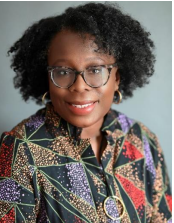 Hayley S. Thompson, Ph.D., is a professor in the Department of Oncology at Wayne State University and the Associate Center Director for Community Outreach and Engagement at the Karmanos Cancer Institute (KCI), an NCI-designated comprehensive cancer center. In this role, she established KCI's Office of Community Outreach and Engagement (KCI COE) and serves as its faculty supervisor. She is also founding director of the emerging Wayne State University Center for Health Equity and Community Knowledge in Urban Populations (CHECK-UP). She is a clinical psychologist whose research addresses racial and ethnic disparities in cancer care and outcomes. Her primary focus is community-based intervention research, including investigations of cancer survivorship. She has received funding from the National Cancer Institute, the American Cancer Society, the National Heart, Lung, and Blood Institute, the Agency for Healthcare Research and Quality, the Patient-Centered Outcomes and Research Institute, and other agencies and foundations. She is currently a co-principal investigator on the NCI-funded African American Resilience in Surviving Cancer (ARISE) Study. Her research also addresses sociocultural assessment in diverse populations. She led the development of the Group-Based Medical Mistrust Scale (GBMMS), widely used in health disparities research, administered in over 100 published, peer-reviewed studies. She currently directs Michigan Cancer HealthLink, a community-academic partnership to build research capacity in diverse communities within Karmanos Cancer Institute's 46-county catchment area with 150 community members involved in contributing to Karmanos' research agenda. She is also Director of the Community Health Scholars Program within CHECK-UP, designed to support metro Detroit residents in building and applying research skills.
Hayley S. Thompson, Ph.D., is a professor in the Department of Oncology at Wayne State University and the Associate Center Director for Community Outreach and Engagement at the Karmanos Cancer Institute (KCI), an NCI-designated comprehensive cancer center. In this role, she established KCI's Office of Community Outreach and Engagement (KCI COE) and serves as its faculty supervisor. She is also founding director of the emerging Wayne State University Center for Health Equity and Community Knowledge in Urban Populations (CHECK-UP). She is a clinical psychologist whose research addresses racial and ethnic disparities in cancer care and outcomes. Her primary focus is community-based intervention research, including investigations of cancer survivorship. She has received funding from the National Cancer Institute, the American Cancer Society, the National Heart, Lung, and Blood Institute, the Agency for Healthcare Research and Quality, the Patient-Centered Outcomes and Research Institute, and other agencies and foundations. She is currently a co-principal investigator on the NCI-funded African American Resilience in Surviving Cancer (ARISE) Study. Her research also addresses sociocultural assessment in diverse populations. She led the development of the Group-Based Medical Mistrust Scale (GBMMS), widely used in health disparities research, administered in over 100 published, peer-reviewed studies. She currently directs Michigan Cancer HealthLink, a community-academic partnership to build research capacity in diverse communities within Karmanos Cancer Institute's 46-county catchment area with 150 community members involved in contributing to Karmanos' research agenda. She is also Director of the Community Health Scholars Program within CHECK-UP, designed to support metro Detroit residents in building and applying research skills.